The Pioneers of Silent Cinema:
Female directors have played a basic role in the progress of cinema since its inception and among them, there are some of the most important directors of all time..In the silent film era, directors like Alice Guy-Blaché (France) and Lois Weber (United States) were key figures, directing and producing hundreds of films. Their influence was considerable, ranging from narrative experimentation to social themes. In Italy, Elvira Notari stood out for her technical skills and artistic sensitivity, making films such as ”La maschera di Carnevale” (1916).
The Advent of Sound and the Challenges of Hollywood:
With the advent of sound, the American film industry became more male-dominated, and opportunities for female directors were drastically reduced. However, some tenacious figures like Dorothy Arzner managed to break through, directing successful films in genres typically dominated by men, such as gangster movies and western. In Europe, Germaine Dulac (France) and Leni Riefenstahl (Germany) experimented with new forms of cinematic language, influencing the cinema of the future.
Feminism and the Nouvelle Vague:
The 1960s and 1970s saw the emergence of a new movement of feminist filmmakers, who used cinema to explore the experiences of women and gender discrimination. In France, Agnès Varda and Marguerite Duras were leading figures of the movement, while in the United States, Shirley Clarke and Maya Deren paved the way for experimental feminist cinema. In Italy, Lina Wertmüller achieved great international success with films like “Mimì metallurgico ferito nell’onore” (1972) and ”Travolti da un insolito destino nell’azzurro mare d’agosto” (1974).
Contemporary Cinema and Diversity:
In recent decades, women have gained greater visibility in the international film landscape. Directors such as Jane Campion (New Zealand), Kathryn Bigelow (United States), Sofia Coppola (United States), Chantal Akerman (Belgium) , and Claire Denis (France) have made award-winning and critically acclaimed films, establishing themselves as authors of great talent and originality.
Persistent Challenges and the Future:
Despite the progress made, female directors continue to face obstacles and disparities in the film industry. Underrepresentation in leadership roles and difficulty accessing funding and production are still real problems. It is indeed thus critically important to continue to promote diversity and inclusion in cinema, to allow women to express their voices and bring new and original stories to the public.
Agnès Varda
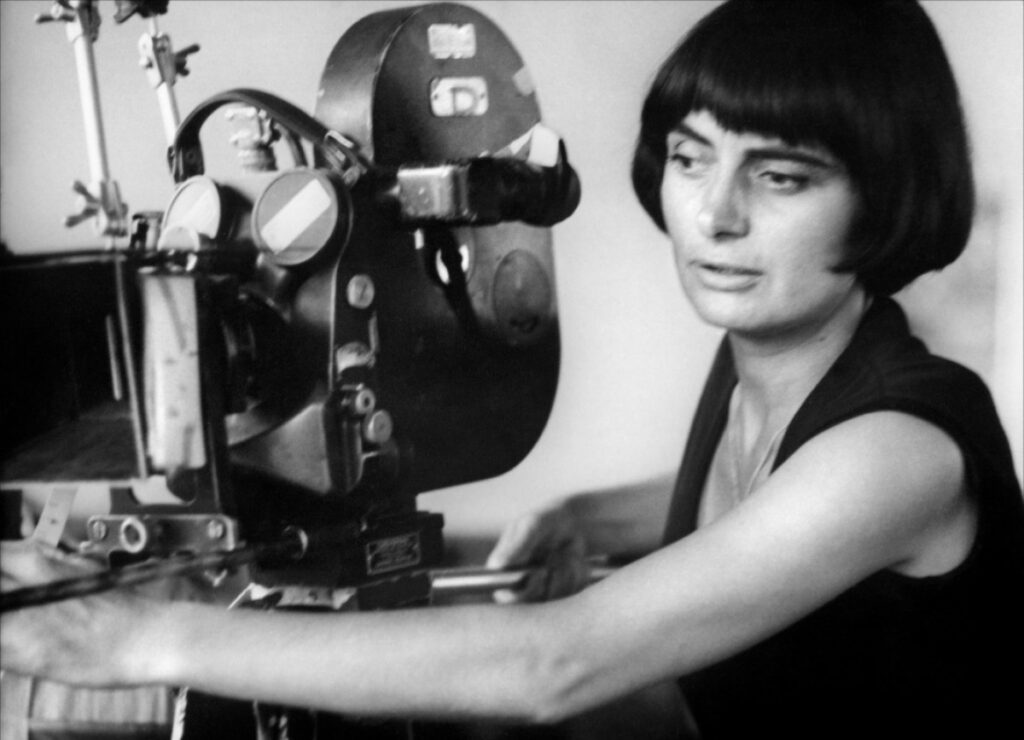
A key figure of the Nouvelle Vague, Agnès Varda (1928-2019) was a Belgian-born French film director, screenwriter, and photographer. A pioneer and innovator, she explored different genres and themes, ranging from documentary to fiction films, with a strong focus on femininity, memory, and social issues.
Her filmmaking style was characterized by a unique blend of realism and poetic imagery, often employing unconventional narrative techniques and a distinct visual aesthetic. Varda’s ability to capture the essence of everyday life and her keen observational skills allowed her to create deeply personal and reflective works.
One of her most celebrated films, “Cléo from 5 to 7” (1962), follows a young woman waiting for medical test results, exploring themes of anxiety, identity, and existentialism in a format that unfolds in real-time. This film, like many of her others, features strong female protagonists and offers a notable perspective on women’s experiences in society.
Varda’s documentary work, such as “The Gleaners and I” (2000), showcases her trademark curiosity and engagement with the world around her. In this film, she examines the lives of modern-day gleaners, individuals who collect leftover crops from fields after harvest, drawing connections to issues of consumerism and social inequity while reflecting on her own life and career.
Throughout her career, Varda received numerous accolades, including an Honorary Academy Award in 2017, recognizing her contributions to cinema and her role as a trailblazer for women filmmakers. Her legacy continues to inspire generations of filmmakers and artists, emphasizing the importance of individual voice and storytelling in an ever-changing cultural landscape.
In addition to her films, Varda was also an accomplished photographer and visual artist, blurring the lines between different artistic mediums. Her innovative spirit and commitment to exploring complex societal themes solidified her place not only as a key figure in the Nouvelle Vague but also as a central figure in the history of cinema. Through her body of work, Agnès Varda remains an enduring symbol of creativity and resilience in the film industry.
Alice Diop
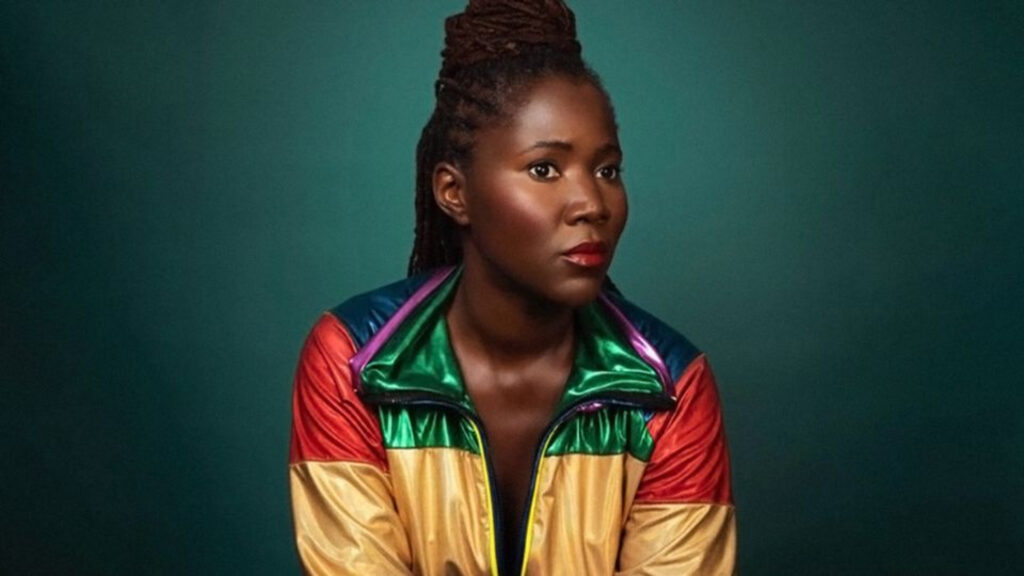
Alice Diop (born 1979) is a French filmmaker. She has made documentaries on contemporary French society and the legal drama Saint-Omer (2022).
Alice Diop (born 1979) is a French filmmaker known for her powerful exploration of contemporary social issues through her documentaries and narrative works. Her film “Saint-Omer” (2022) is particularly notable, as it blends elements of documentary and fiction to explore themes of motherhood, crime, and identity. The film is inspired by a real-life trial and delves into the complexities of its characters’ lives, reflecting Diop’s interest in the intersections of personal and societal narratives.
Diop’s earlier documentaries, such as “The Last Journey” and “We,” have received critical acclaim for their poignant portrayal of marginalized communities in France. Through her works, she often addresses issues of race, immigration, and the intricate dynamics of urban life, providing a nuanced perspective on modern French society.
Her unique style combines observational documentary techniques with narrative elements, allowing viewers to engage deeply with her subjects. Diop has emerged as a significant voice in contemporary cinema, earning accolades at various film festivals and establishing herself as a crucial figure in the discourse surrounding identity and representation in film.
With “Saint-Omer,” she has not only showcased her storytelling prowess but also sparked important conversations about the systemic factors influencing the lives of the characters portrayed, further solidifying her reputation as a vital contributor to the film industry.
Alice Guy-Blaché
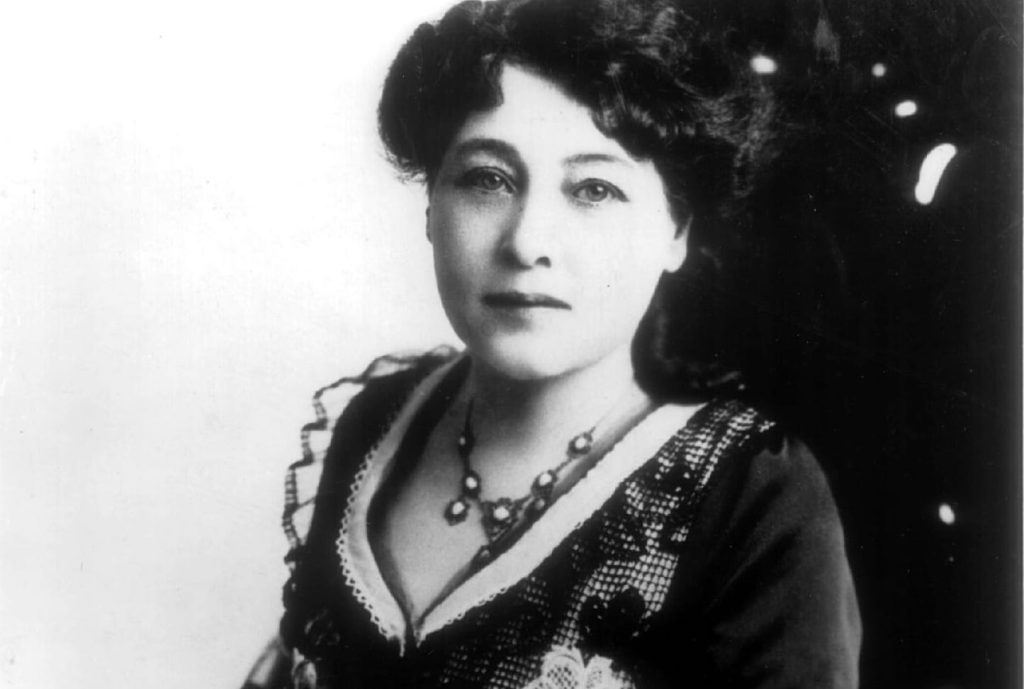
Alice Guy-Blaché (1873-1968) was a French film director, screenwriter, and producer. She is considered one of the first filmmakers to create a narrative fiction film and the first woman to ever direct a film.
Alice Guy-Blaché (1873-1968) was a French film director, screenwriter, and producer. She is considered one of the first filmmakers to create a narrative fiction film and the first woman to ever direct a film. Her groundbreaking work began in the late 19th century, and she played a crucial role in the development of cinema as an art form.
Starting her career at Gaumont Film Company in Paris, she directed her first film, “La Fée aux Choux” (The Cabbage Fairy), in 1896. This film is often cited as one of the first narrative films, demonstrating her innovative approach to storytelling through moving images. Guy-Blaché’s unique vision led her to produce and direct over 1,000 films, including short films, comedies, and elaborate productions, many of which featured strong female characters and narratives that challenged contemporary norms.
In 1907, she moved to the United States, where she established her own production company, Solax Studios, becoming one of the first women to own and run a film studio. During her time in America, she continued to produce a significant body of work, contributing to both silent and early sound cinema. Her films often showcased a variety of genres, including comedy, drama, and fantasy.
Despite her influential contributions to the film industry, Alice Guy-Blaché’s legacy remained largely overlooked for many decades. However, recent scholarship and retrospective exhibitions have helped to revive interest in her work. Today, she is recognized as a pioneer in filmmaking and a trailblazer for women in the industry. Her remarkable story and contributions are an integral part of film history, inspiring future generations of filmmakers around the world.
Alma Harel
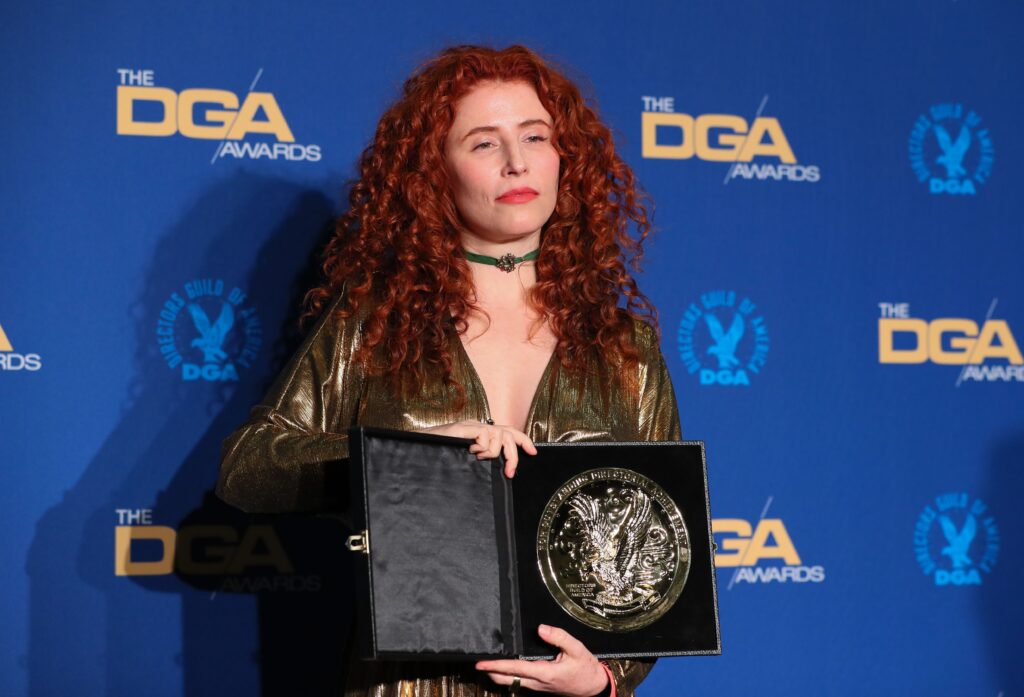
Alma Har’el (born 1976) is an Israeli-American filmmaker known for her innovative approach to cinema. Her work spans documentaries, music videos, commercials, and narrative films, creating pieces that frequently blur the lines between reality and inventiveness.
Alma Har’el (born 1976) is an Israeli-American filmmaker known for her innovative approach to cinema. Her work spans documentaries, music videos, commercials, and narrative films, creating pieces that frequently blur the lines between reality and inventiveness. Har’el gained significant recognition for her feature debut, “Bombay Beach” (2011), a visually striking documentary that intertwines the stories of individuals living in the impoverished community of Bombay Beach, California, near the Salton Sea.
Her signature style often incorporates dreamlike sequences and a strong emphasis on personal narratives, inviting audiences to engage deeply with her subjects. Har’el further solidified her reputation with “LoveTrue” (2016), a documentary that explores the complexities of love through the lives of three individuals, melding interviews with narrative aesthetics.
In 2019, she directed “Honey Boy,” a semi-autobiographical film written by actor Shia LaBeouf that delves into his tumultuous childhood and relationship with his father. The film received critical acclaim for its raw honesty and emotional depth, showcasing Har’el’s ability to craft compelling narratives that resonate on multiple levels.
Beyond film, Har’el is also known for her work in the music industry, directing visually stunning music videos for artists like Flying Lotus and the band Bait. Her contributions to the industry have earned her several awards and nominations, highlighting her unique vision and the emotional power of her storytelling.
Throughout her career, Alma Har’el continues to challenge conventions, pushing the boundaries of traditional filmmaking and inviting audiences to explore the intersections of reality, memory, and imagination. Her work not only celebrates individual experiences but also sparks broader conversations about identity, trauma, and the human condition.
Andrea Arnold
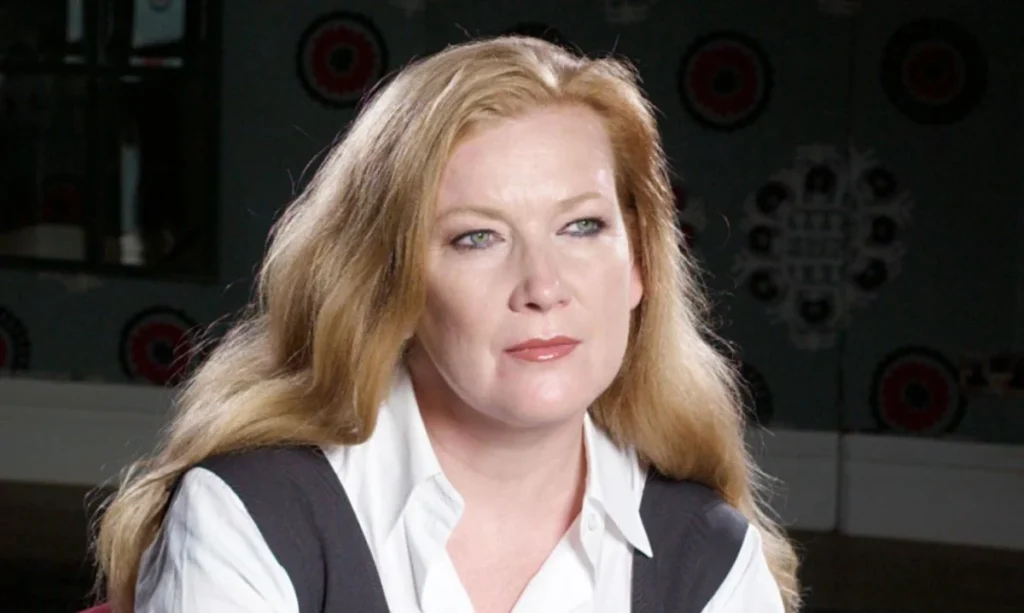
Andrea Arnold (born 1961) is an English filmmaker who has carved a distinct path with her raw and unflinching portrayal of social realism. Originally an actress, she transitioned to directing, winning an Academy Award for her short film Wasp (2005).
A vision curated by a filmmaker, not an algorithm
In this video I explain our vision
Barbara Kopple
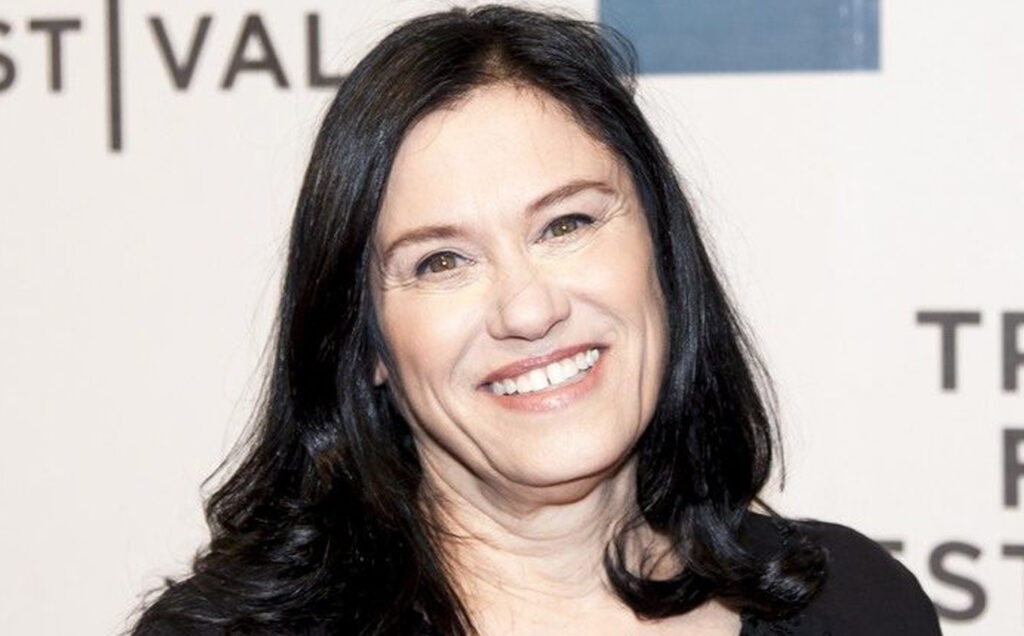
Barbara Kopple (born 1946) is an American filmmaker primarily known for her work as a documentary filmmaker. She is considered a pioneer of cinéma vérité, a documentary style that emphasizes direct, observational filmmaking, and she helped bring it to the attention of American audiences.
Kopple gained significant recognition with her critically acclaimed film “Harlan County, USA” (1976), which chronicles a coal miners’ strike in Kentucky. The film not only highlighted the labor struggles and the plight of the miners but also showcased her ability to depict the complexities of human emotion and social conflict. “Harlan County, USA” won the Academy Award for Best Documentary Feature and solidified her status as a leading figure in documentary filmmaking.
Throughout her career, Kopple has tackled a variety of social issues, using her platform to shed light on topics such as labor rights, gun control, and the American landscape’s cultural shifts. Her commitment to immersive storytelling manifests in subsequent projects like “American Dream” (1990), which examines the struggle of workers at a Hormel meatpacking plant in Minnesota, and “Shut Up & Sing” (2006), focusing on the Dixie Chicks’ fallout from a controversial statement regarding President George W. Bush.
Kopple’s films often incorporate a participatory element, where she not only captures the subjects’ experiences but sometimes becomes an active part of the narrative, further blurring the lines between observer and participant. Her work has earned her multiple awards and accolades, including two Academy Awards and several Emmy Awards, reflecting her impact on the documentary genre and her ability to spark conversations on pressing social issues.
In addition to her filmmaking, Barbara Kopple is also an educator, sharing her expertise and passion for storytelling with aspiring filmmakers. Her contributions to cinema continue to inspire new generations, affirming her legacy as one of the foremost documentarians of her time.
Chantal Akerman
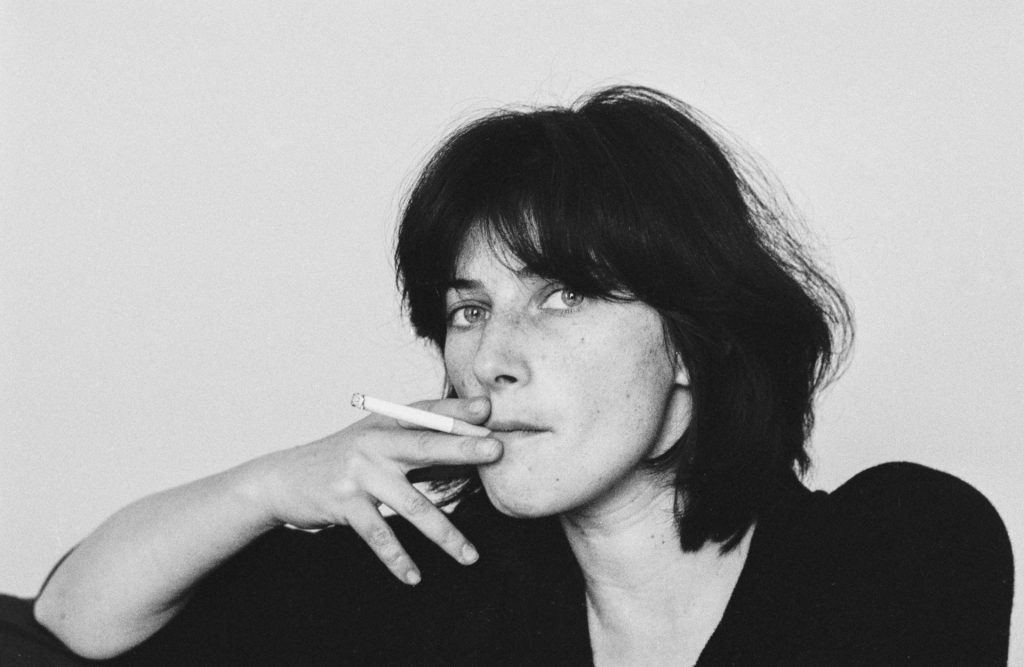
Chantal Akerman (1950-2015) was a highly influential Belgian film director, screenwriter, artist, and film professor. She is best known for her slow-burning, minimalist films that explore themes of loneliness, alienation, and the passage of time.
Her most acclaimed work, “Jeanne Dielman, 23, Quai du Commerce, 1080 Bruxelles” (1975), is often cited as a landmark of feminist cinema. The film meticulously chronicles the daily routine of a widowed mother over three days, using long takes to emphasize the monotony of her domestic life while subtly revealing the underlying tension and despair.
Akerman’s films often defy conventional narrative structures, prioritizing a contemplative approach that invites audiences to engage deeply with the film’s visual and auditory elements. Her use of space and time serves to heighten feelings of isolation and introspection, allowing viewers to resonate with her characters on a profound level.
Beyond “Jeanne Dielman,” Akerman’s filmography includes notable works such as “The Meetings of Anna” (1978), “News from Home” (1977), and “La Captive” (2000). Each piece reflects her unique style, characterized by a blend of personal history and universal themes that challenge societal norms and expectations.
In addition to her filmmaking, Akerman was a passionate educator, sharing her insights and experiences with students at various institutions, including Yale University and the European Graduate School. Her influence extends beyond cinema, as she was also involved in visual arts, installations, and performance, merging her various artistic pursuits into a singular voice.
Chantal Akerman’s legacy continues to inspire new generations of filmmakers and artists, who admire her fearless exploration of difficult subjects and her commitment to portraying the complexities of women’s experiences. Her work remains an essential touchstone for discussions surrounding identity, narrative form, and the power of cinema as a medium for personal and collective storytelling.
Charlotte Wells
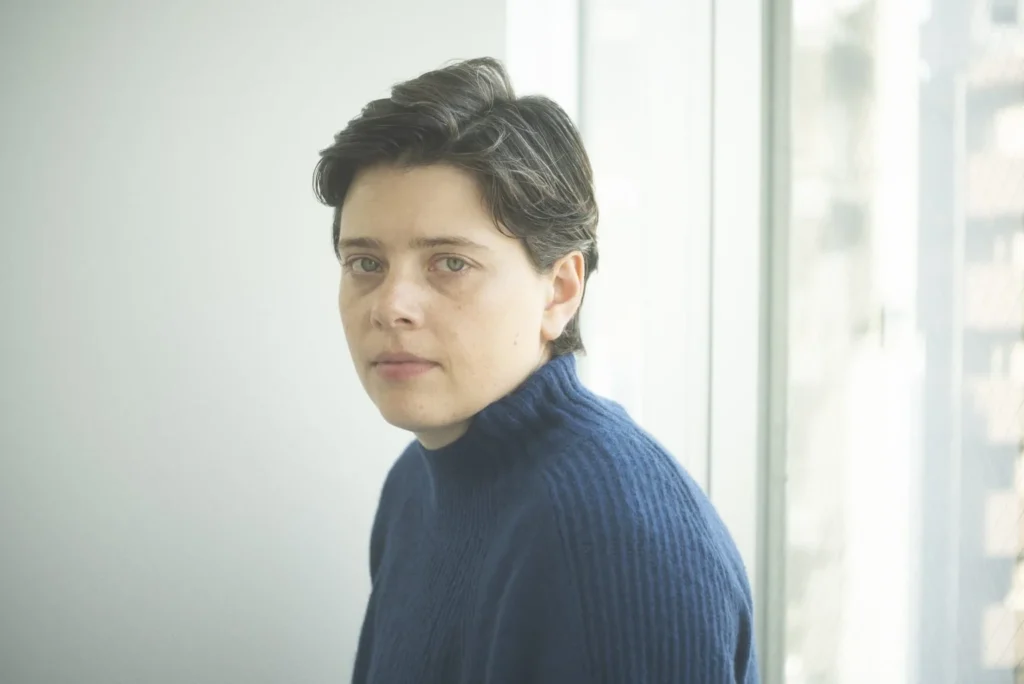
Charlotte Wells (born 1987) is a Scottish director, writer, and producer who quickly gained recognition in British cinema. Her debut feature film, Aftersun (2022), has garnered critical acclaim and established her as a promising new voice.
Charlotte Wells (born 1987) is a Scottish director, writer, and producer who quickly gained recognition in British cinema. Her debut feature film, Aftersun (2022), has garnered critical acclaim and established her as a promising new voice.
The film, which stars Paul Mescal and Frankie Corio, tells a poignant story about a father and daughter during a vacation that explores themes of memory, nostalgia, and the complexities of familial relationships. Wells’s ability to capture intimate moments and evoke deep emotional responses has resonated with audiences and critics alike.
Before her feature debut, Wells honed her craft through short films that showcased her unique style and storytelling sensibilities. Her work often delves into the intricacies of human experiences, with a particular focus on relationships and the passage of time.
In addition to her work in film, Charlotte Wells has been involved in various artistic collaborations, including theater and visual arts, further demonstrating her versatility as a creator. As she continues to build her filmography, many in the industry are eager to see how her voice evolves and the stories she chooses to tell next. Given the accolades and attention that Aftersun received, Wells is poised to make significant contributions to the landscape of contemporary cinema in the coming years.
Cheryl Dunye

Cheryl Dunye (born May 13, 1966) is a Liberian-American filmmaker, screenwriter, producer, editor, and actress who is considered a pioneer in queer feminist cinema. Her work often explores issues of race, gender, and sexuality, particularly the experiences of black lesbian women.
Cheryl Dunye gained prominence in the 1990s with her groundbreaking film “The Watermelon Woman” (1996), which was one of the first feature films to center on a black lesbian character. The film’s blend of documentary and fictional storytelling offers a unique perspective on race, representation, and identity, and it has since become a significant work in both queer and African American cinema.
Dunye’s style often incorporates elements of metafiction, allowing her to comment on the process of filmmaking itself and the historical erasure of black queer narratives in mainstream media. Throughout her career, she has received numerous accolades for her contributions to film and has influenced a generation of filmmakers and artists who seek to tell diverse and underrepresented stories.
In addition to “The Watermelon Woman,” Dunye has directed several other notable works, including “My Baby’s Daddy” and “The Owls,” which further delve into themes of community, belonging, and the complexities of LGBTQ+ identity. Her films often highlight the intersections of various identities, challenging audiences to confront societal norms and embrace a broader understanding of human experience.
Dunye has also been involved in academia, teaching film and gender studies, and continues to be an advocate for increased representation in the film industry. Through her work, she aims to empower marginalized voices and create space for authentic storytelling. Her legacy continues to inspire filmmakers, particularly those from the LGBTQ+ community, striving to explore their unique narratives on screen.
Chinonye Chukwu
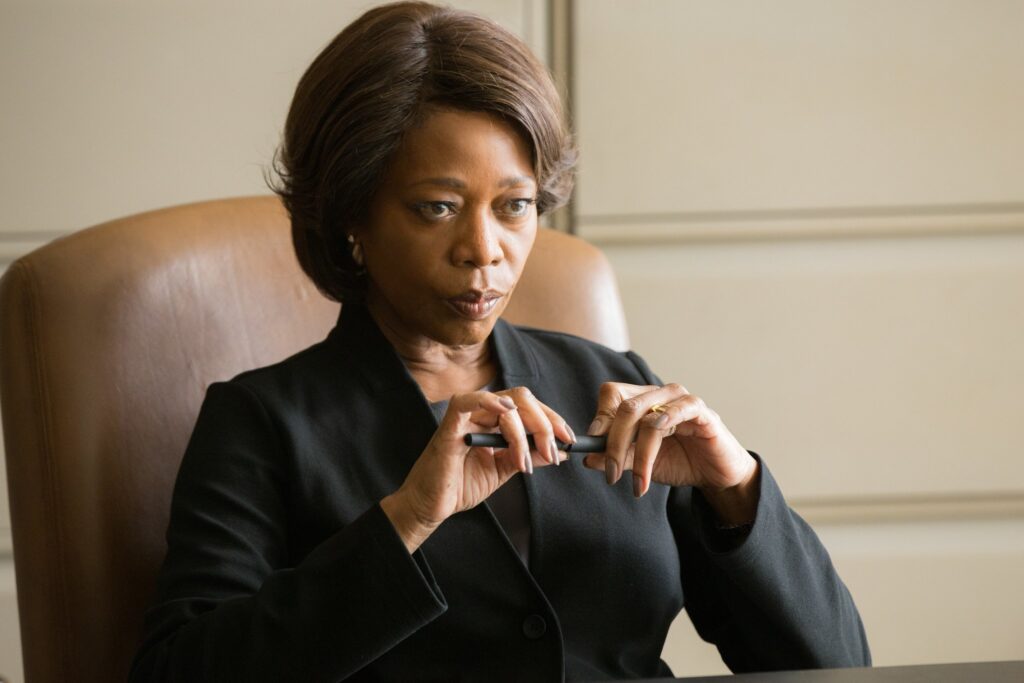
Chinonye Chukwu (born May 19, 1985) is a Nigerian-American film director, screenwriter, and producer who has made an important impact on contemporary American cinema. She is best known for her powerful dramas that explore social justice issues and complex human experiences.
Chinonye Chukwu gained significant recognition for her critically acclaimed film “Clemency,” which won the U.S. Dramatic Grand Jury Prize at the 2019 Sundance Film Festival. The film addresses the emotional and ethical dilemmas faced by death row prison warden Bernadine Williams, highlighting the intersection of personal and institutional struggles surrounding capital punishment. Chukwu’s poignant storytelling and nuanced character development resonate deeply, prompting audiences to contemplate the broader implications of justice and redemption.
Chukwu’s work is characterized by her dedication to amplifying marginalized voices and tackling urgent societal issues. She often draws inspiration from her own experiences and the stories of those around her, crafting narratives that challenge viewers to reflect on their own beliefs and biases. Her commitment to authentic representation in film is evident in her choice of narratives that center on Black and immigrant experiences, showcasing their richness and complexity.
In addition to “Clemency,” her directorial debut, “Alaskaland,” received praise for its intimate portrayal of a Nigerian-American family’s struggles as they navigate life in contemporary America. Chukwu’s artistry has not gone unnoticed, as she has earned numerous awards and nominations, establishing herself as a leading figure in film.
As she continues to create impactful cinema, Chinonye Chukwu remains an influential advocate for diversity and inclusion in the entertainment industry, inspiring a new generation of filmmakers to tell their stories and challenge the status quo. Her work not only entertains but also educates and inspires social change, making her a vital voice in modern filmmaking.
Chloe Zhao
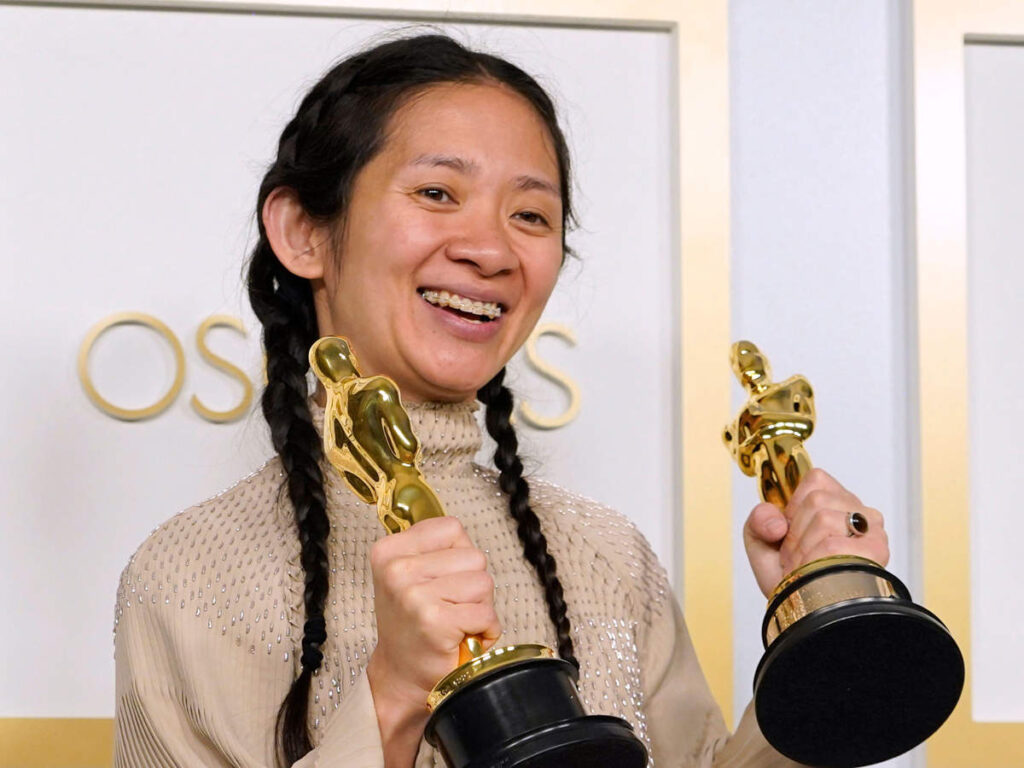
Chloé Zhao (born Zhao Ting in 1982) is a Chinese-born filmmaker who has gained international acclaim for her unique and poetic style. She is known for her films that explore themes of identity, loss, and the human connection to nature.
Her breakthrough came with the 2017 film “The Rider,” which tells the story of a young cowboy in South Dakota navigating personal and cultural challenges after a near-fatal rodeo accident. The film received critical acclaim for its authentic portrayal of American life and was praised for its breathtaking cinematography and emotional depth.
Zhao’s work often features non-professional actors and real-life stories, a testament to her commitment to authenticity. This approach is evident in her 2020 film “Nomadland,” which combines documentary and narrative storytelling to depict the lives of modern-day nomads traveling through the American West. The film not only won numerous awards, including the Academy Award for Best Picture, but also secured Zhao the Oscar for Best Director, making her the second woman and first woman of color to win the award.
Zhao’s storytelling is deeply rooted in her own experiences and cultural background. Growing up in China and later moving to the United States, she seamlessly weaves together elements of her heritage with the landscapes and stories she encounters. Her films invite viewers to reflect on their own connections to place, community, and the broader human experience.
Chloé Zhao continues to push boundaries in the film industry, blending genres and exploring untold stories. Her work resonates with audiences around the world, highlighting the beauty and resilience of the human spirit. As she embarks on new projects, including a highly anticipated Marvel film, her distinct voice and vision promise to shape the future of cinema in exciting ways.
Claire Denis
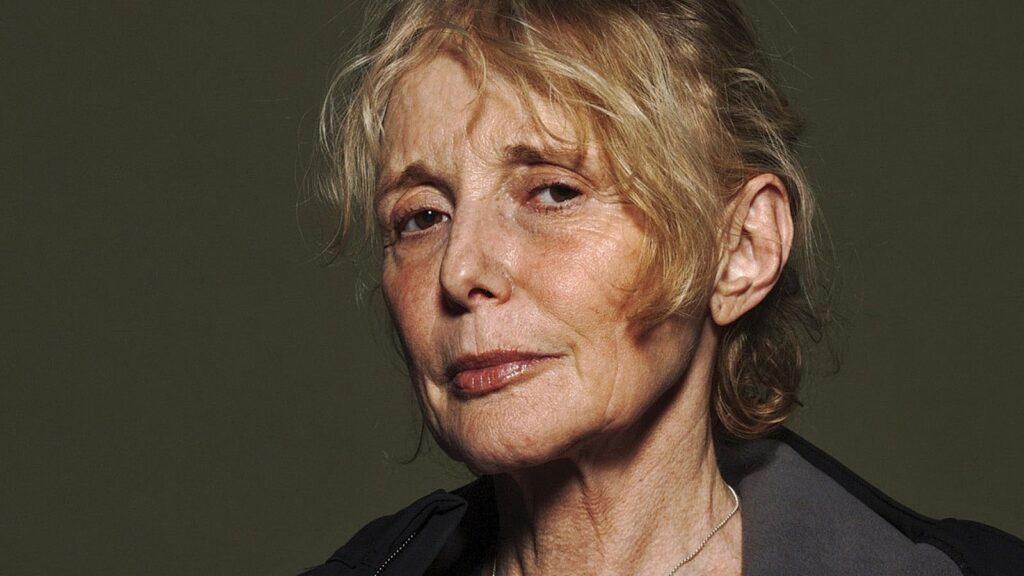
Claire Denis (born April 21, 1948) is a renowned French filmmaker, screenwriter, and actress.She is celebrated for her distinctive style that delves into the complexities of the human condition, often exploring themes of isolation, desire, and the challenges of intercultural interaction.
Clea DuVall

Clea DuVall (born September 25, 1977) is an accomplished American actress and filmmaker who has distinguished herself both for her on-screen performances and her work behind the camera.
Clio Barnard
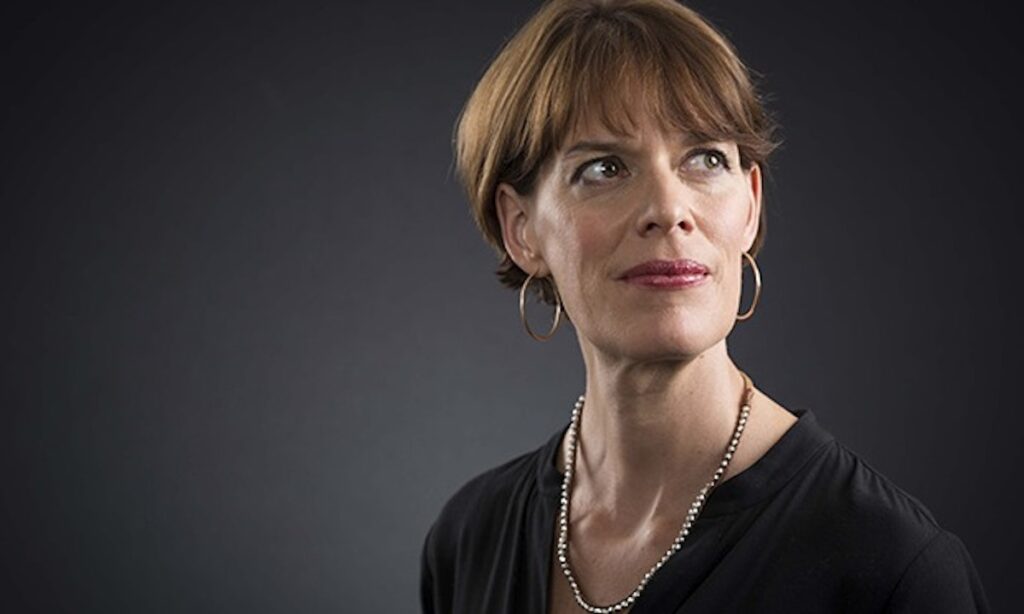
Clio Barnard (born January 1, 1965) is a British director of documentary and feature films known for her socially conscious storytelling and innovative approach. Her work often sheds light on marginalized communities and untold stories.
Debra Granik
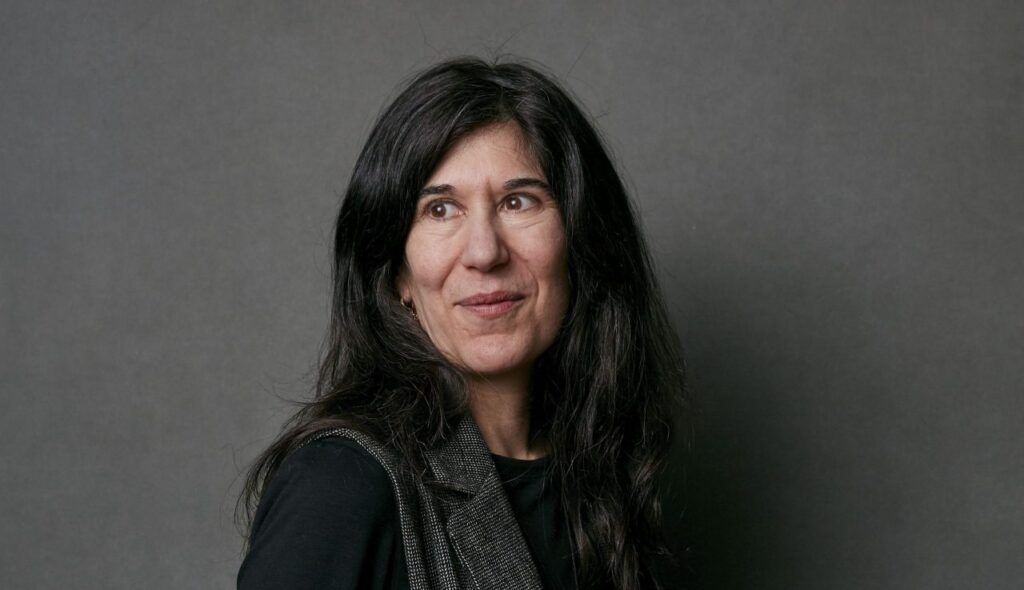
Debra Granik (born February 6, 1963, in Cambridge) is an American autonomous filmmaker, screenwriter, and cinematographer known for her gritty cinematic style and focus on unexpected human stories.
Dee Rees
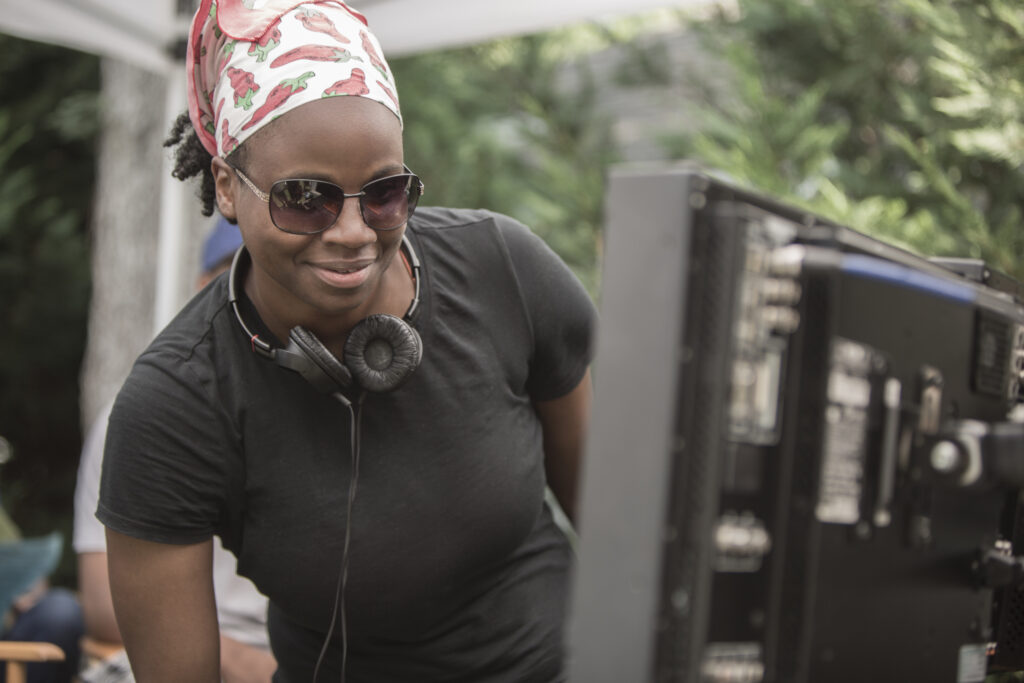
Diandrea Rees (born February 7, 1977), known professionally as Dee Rees, is an American screenwriter and director who has garnered critical acclaim for her powerful films that explore themes of identity, race, sexuality, and social justice.
Deepa Mehta

Deepa Mehta (born January 1, 1950, in Amritsar) is an Indo-Canadian film director, screenwriter, and producer known for her bold style and fearless exploration of socially challenging themes. She is considered one of the most important voices in contemporary Asian cinema.
Mehta’s filmmaking career spans several decades and illustrates her commitment to tackling complex and often controversial subjects. She gained international recognition with her elemental trilogy: “Fire” (1996), “Earth” (1998), and “Water” (2005), each film addressing issues such as gender identity, colonialism, and the traditional roles of women in society.
Fire,” which explores the theme of same-sex love and family dynamics, faced significant backlash in India, leading to protests and censorship. Nevertheless, it garnered critical acclaim globally, paving the way for conversations about sexuality in Indian cinema.
“Earth,” set during the partition of India in 1947, highlights the impact of political turmoil on personal relationships, showcasing Mehta’s ability to weave history and personal narrative seamlessly.
Water,” perhaps her most impactful work, delves into the lives of widows in Varanasi and the societal constraints placed upon them. The film’s release was met with both acclaim and significant controversy, eventually leading to its Oscars nomination for Best Foreign Language Film.
In addition to her trilogy, Mehta has directed numerous other films, including “Heaven on Earth” (2008) and “Beeba Boys” (2015), and has expanded her work into television, including the acclaimed series “The Republic of Doyle.
Deepa Mehta’s films are characterized by their stunning cinematography, rich narratives, and a profound empathy for her characters, making her a pivotal figure in expanding the landscape of global cinema. She continues to inspire a new generation of filmmakers with her fearless approach and dedication to storytelling that challenges societal norms.
Domee Shi
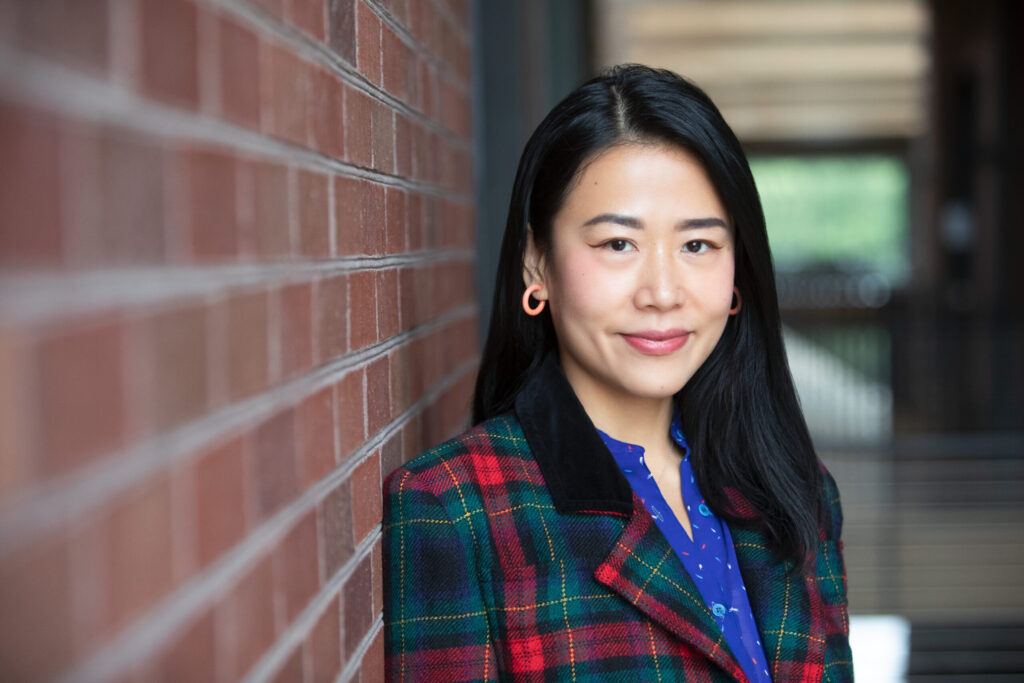
Domee Shi (pronounced “doh-mee”; 石之予, Shí Zhīyǔ; born September 8, 1989) is a Canadian film director and screenwriter who has made a significant impact in the world of animation.
Dorothy Arzner
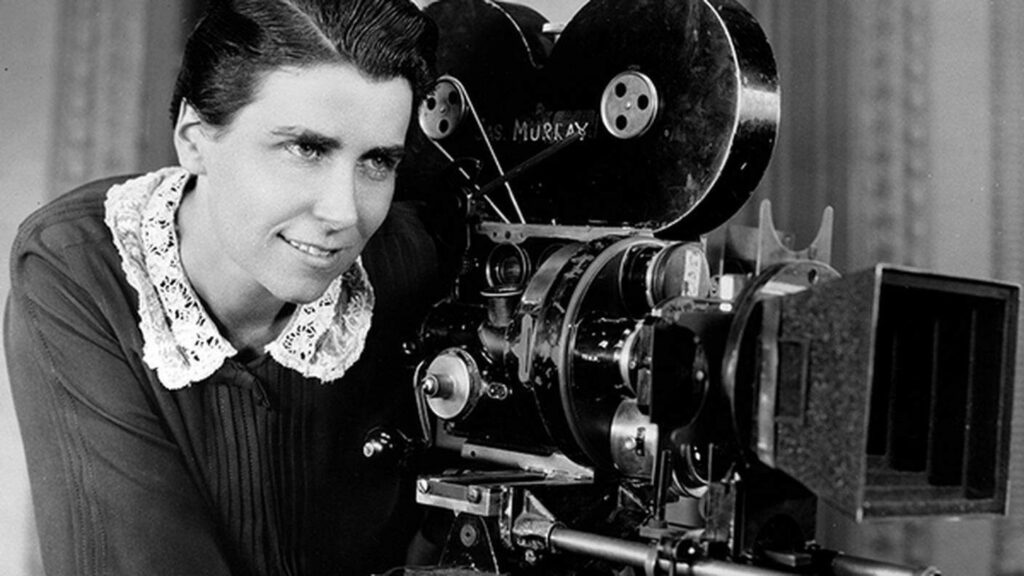
Dorothy Arzner (January 3, 1897 – October 1, 1979) was a pioneering figure in American cinema, establishing herself as a successful director during an era dominated by men.
Elaine May
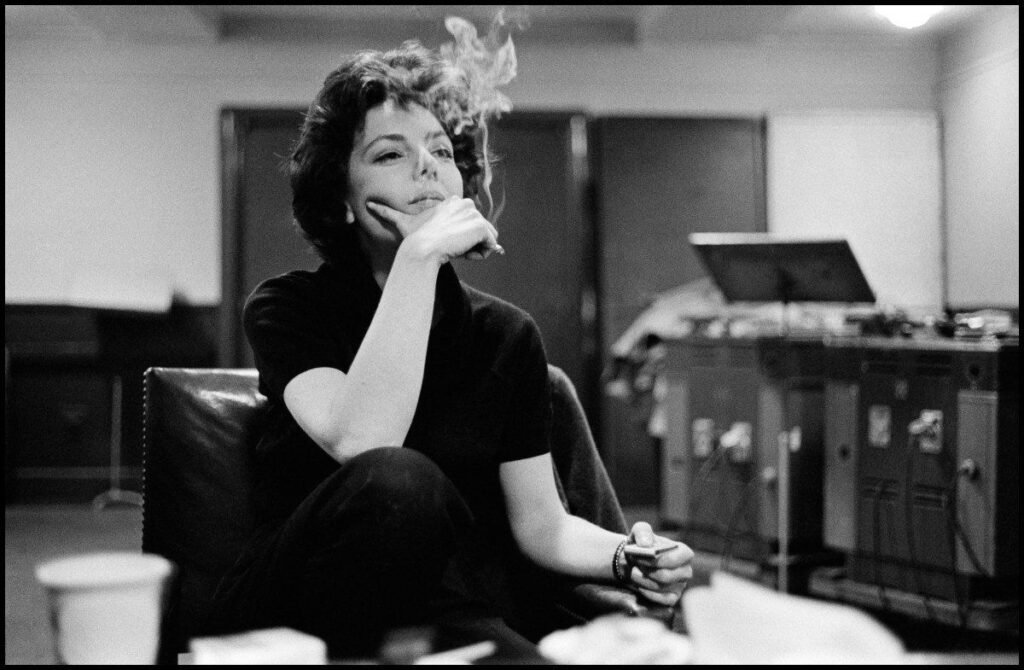
Elaine May (born Elaine Iva Berlin on April 21, 1932) is an American comedian, actress, writer, and director who has left a lasting mark on the world of entertainment. Her career spans over six decades, showcasing her versatility and talent across various artistic disciplines.
Emerald Fennell

Emerald Lilly Fennell (born October 1, 1985, in London) is a British actress, screenwriter, and director who is quickly establishing herself as an important voice in contemporary cinema.
erin Lee Carr

Erin Lee Carr is an American documentary filmmaker known for her thought-provoking and socially relevant films. Here’s a breakdown of her career:
Euzhan Palcy
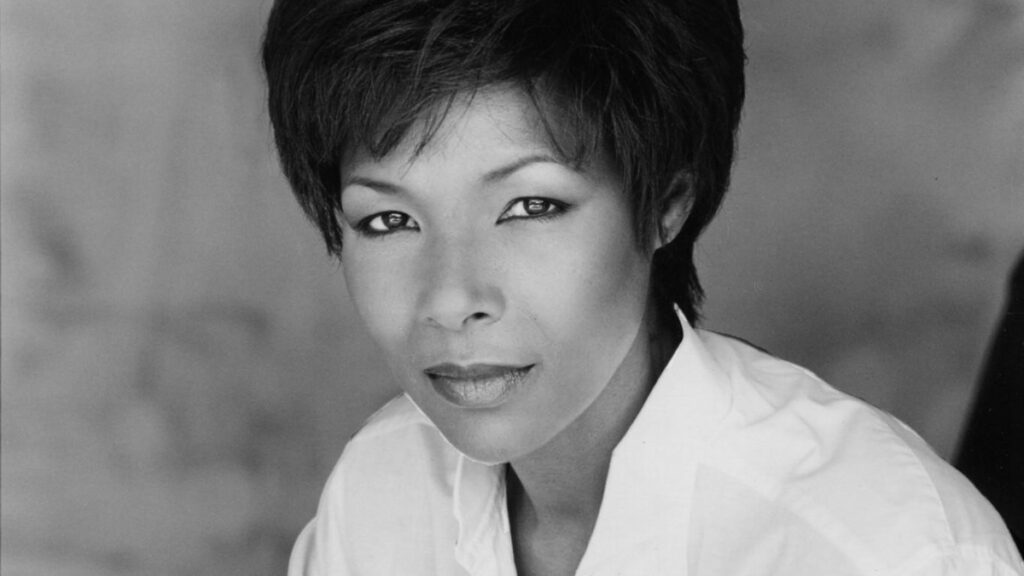
euzhan Palcy (born January 13, 1958 in Fort-de-France, Martinique) is a French Martiniquan director and screenwriter, considered a pioneer of caribbean cinema and a prominent figure in cinema history.
Germaine Dulac
Germaine Dulac (born Charlotte Elisabeth Germaine Saisset-Schneider; November 17, 1882 – July 20, 1942) was a French filmmaker, film theorist, journalist, and critic who left a lasting impact on the development of cinema.
Greta Gerwig

Greta Gerwig is an American actress, screenwriter, and director who has distinguished herself for her versatility and unique style in the contemporary film landscape.
Greta Gerwig is an American actress, screenwriter, and director who has distinguished herself for her versatility and unique style in the contemporary film landscape. Emerging initially as a prominent figure in the indie film scene, Gerwig gained recognition for her roles in films like “Frances Ha” and “Mistress America,” both of which she co-wrote with Noah Baumbach. Her performances often resonate deeply with audiences, showcasing a blend of humor, vulnerability, and authenticity.
As a director, Gerwig made her feature debut with “Lady Bird” in 2017, a coming-of-age story that received critical acclaim and was nominated for several Academy Awards, including Best Picture. The film’s exploration of mother-daughter relationships and the struggles of adolescence struck a chord with viewers, further establishing Gerwig as a talented storyteller.
In 2020, she released her adaptation of Louisa May Alcott’s classic novel “Little Women,” which was praised for its fresh perspective and strong character development. The film not only reaffirmed her status as a visionary director but also showcased her ability to breathe new life into beloved literary works.
Gerwig’s filmmaking style often emphasizes the complexity of women’s experiences, making her a key voice in modern cinema. Her work reflects a keen understanding of narrative, character nuance, and emotional depth, resonating with diverse audiences and inspiring a new generation of filmmakers.
With her distinctive vision and commitment to storytelling, Greta Gerwig continues to shape the landscape of contemporary film, paving the way for bold narratives and rich character portrayals that challenge societal norms and embrace authenticity. Her future projects are highly anticipated, as they promise to continue exploring themes of identity, family, and personal growth.
Gurinder Chadha

Gurinder Chadha, OBE (born January 10,1960) is a Kenyan-born Indo-British film director, screenwriter, and producer who has carved a unique space in the British film industry. Her work is known for its exploration of the experiences of South Asian communities living in the United Kingdom.
ida lupino
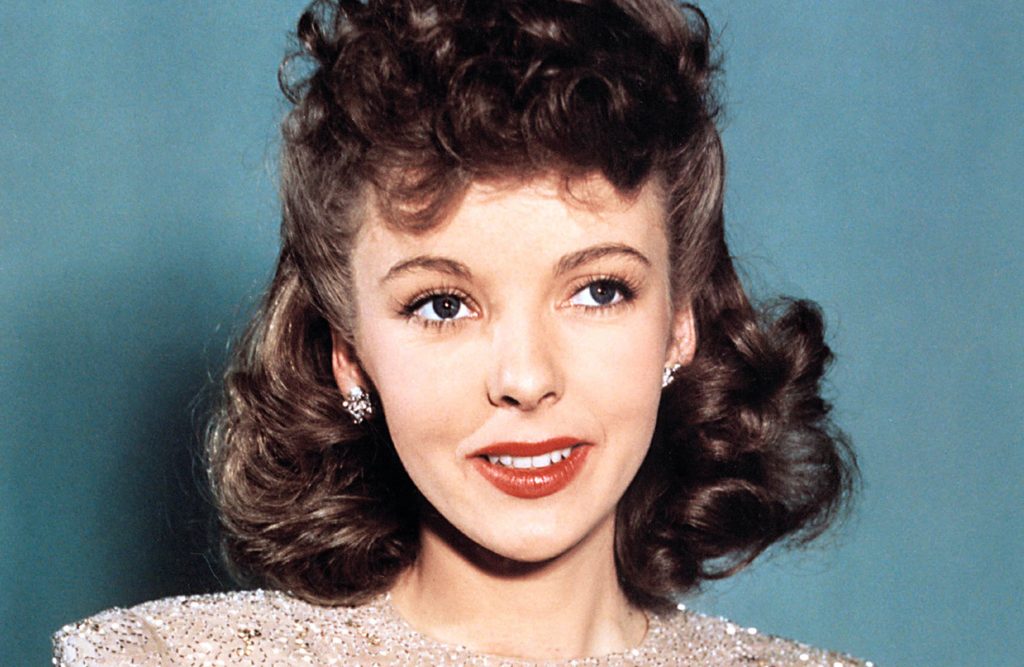
Ida Lupino (February 4, 1918 – August 3, 1995) was an English-American actress, director, screenwriter, and producer. Throughout her 48-year career, she proved to be a multifaceted artist, leaving her mark both as a talented performer and as a pioneer of female filmmaking during Hollywood’s golden age.
Ida Lupino began her career in the 1930s as a film actress in Britain, gaining recognition for her compelling performances in various genres, including drama and comedy. After moving to Hollywood, she signed with major studios like Warner Bros., where she became known for her strong portrayals of complex characters. Lupino’s work often challenged the traditional norms of femininity, showcasing women’s inner struggles and strength.
In the 1940s, facing limited opportunities as an actress, she broke new ground by turning to filmmaking. She co-founded the independent production company, The Filmmakers, allowing her to take on roles both behind and in front of the camera. One of her most significant achievements was her direction of “Not Wanted” (1949), a controversial film that dealt with the taboo subject of unplanned pregnancy. This marked Lupino as one of the few female directors in an industry predominantly run by men.
Her directorial style was noted for its realism and emotional depth. Over the years, she directed several critically acclaimed films, including “The Hitch-Hiker” (1953), which became the first film noir directed by a woman. Lupino’s work often featured strong female leads and addressed social issues, including mental health and women’s rights, which were ahead of her time.
In addition to her directorial ventures, Lupino continued acting, appearing in various television series and films throughout the 1950s and 1960s. She became a fixture on the small screen, guest-starring in numerous shows and earning accolades for her performances. Her contributions to both film and television solidified her legacy as a trailblazer for women in the entertainment industry.
Throughout her career, Ida Lupino was admired not only for her artistry but also for her tenacity in an industry that frequently marginalized women. She remains revered as a pioneering figure whose influence continues to inspire aspiring female filmmakers and actors today. Lupino’s journey reflects her commitment to breaking barriers and reshaping the portrayal of women in cinema.
Ildikó Enyedi
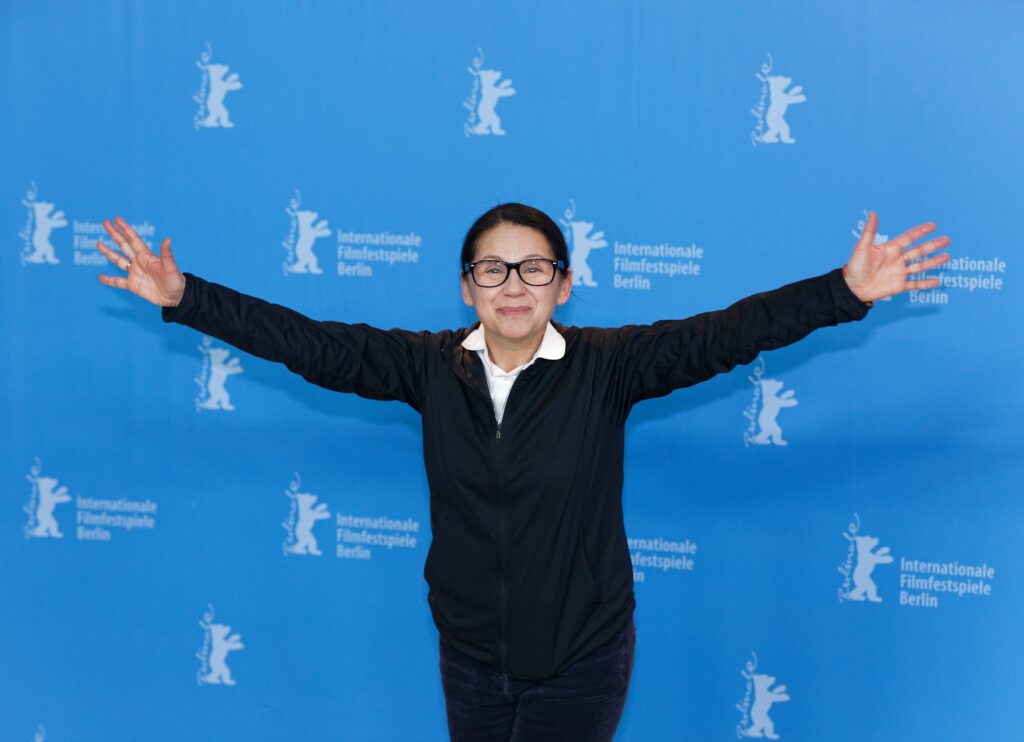
Ildikó Enyedi (born November 15, 1955) is a Hungarian film director and screenwriter. She is known for her unique filmmaking style, which frequently combines elements of realism, humor, and magic. Her films explore universal themes such as love, loss, and loneliness.
Jamie Babbit
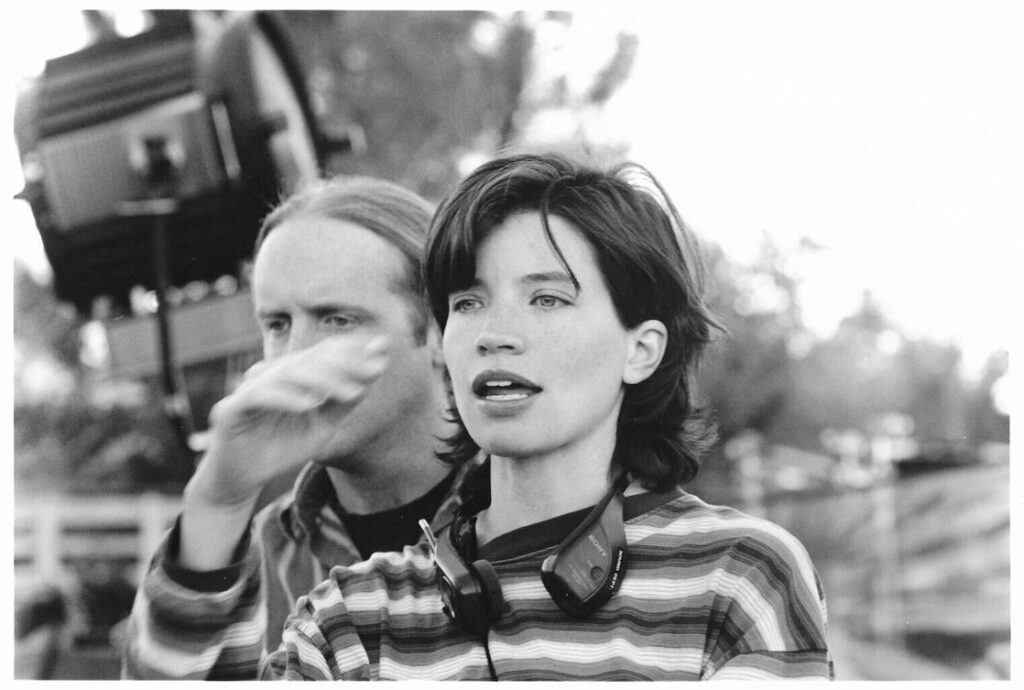
Jamie Babbit is an American director, producer, and screenwriter known for her comedic touch and exploration of LGBTQ+ themes in film and television.
Jane Campion
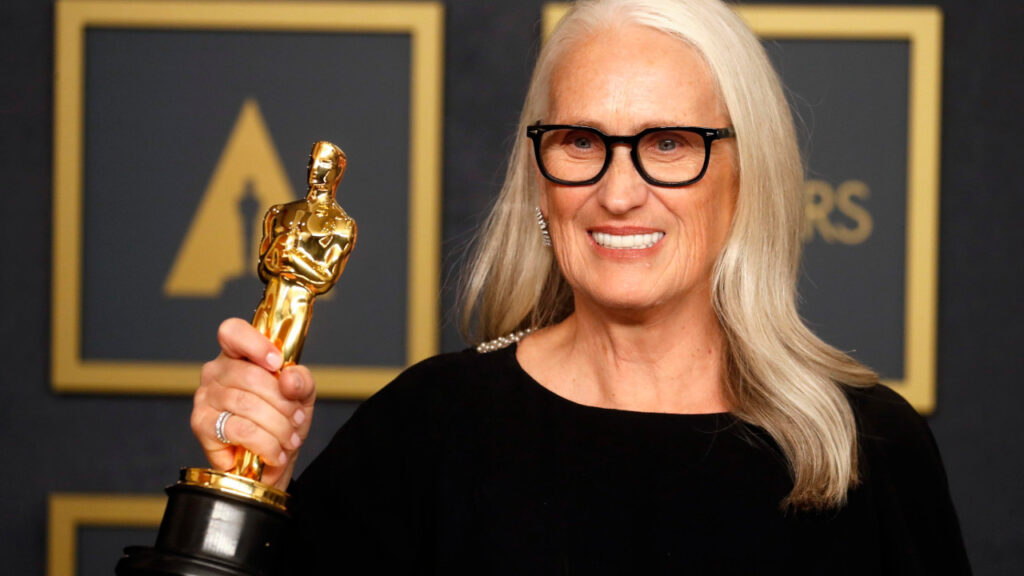
Dame Elizabeth Jane Campion (born April 30, 1954) is a New Zealand filmmaker who has achieved international acclaim for her thought-provoking and visually stunning films.
Jennifer Kent
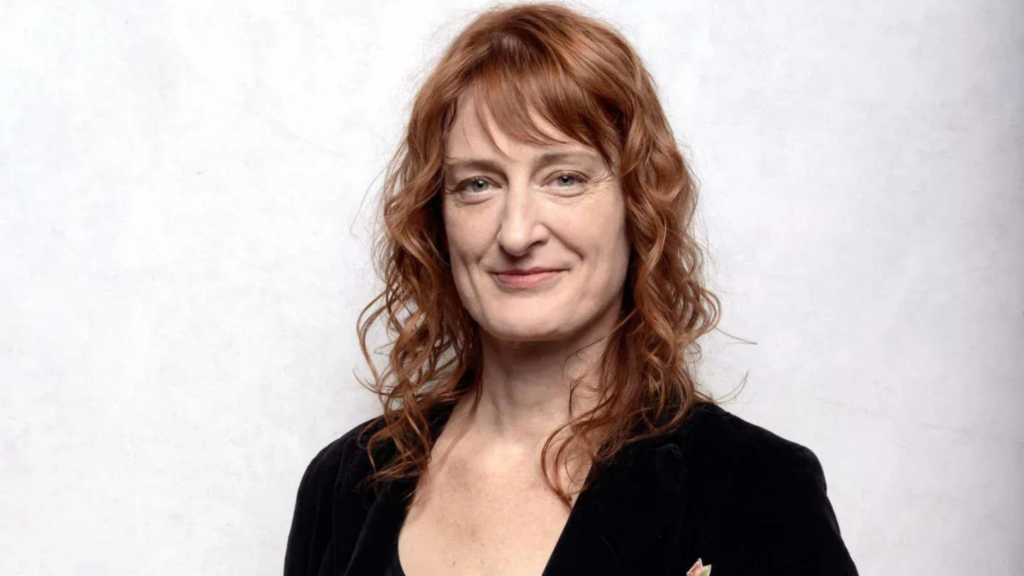
Jennifer Kent (born March 5, 1969) is an Australian director, screenwriter, and former actress. She is known for her bold filmmaking style and ability to tell dark and engrossing stories.
Jehane Noujaim
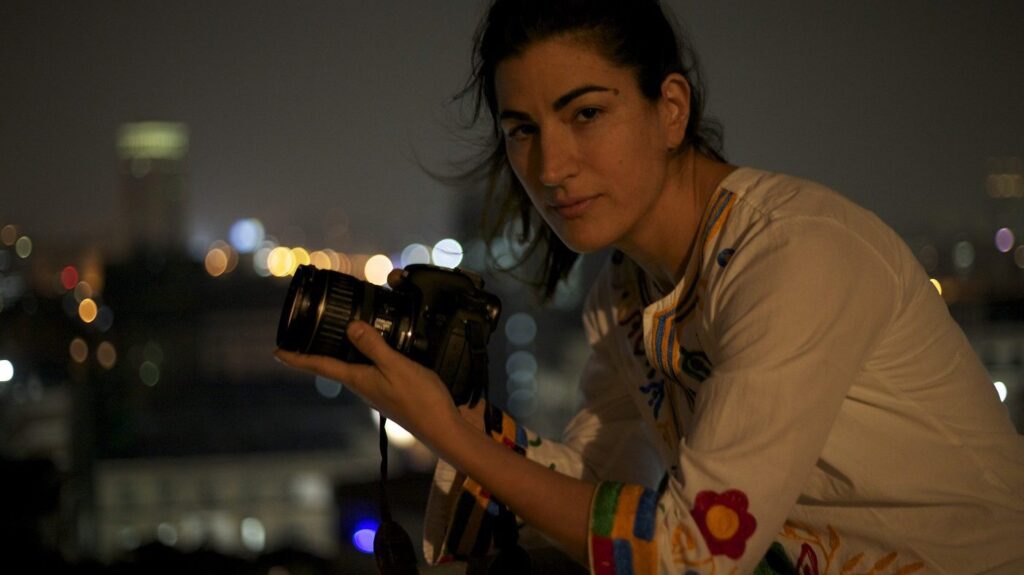
Jehane Noujaim (born May 17, 1974) is an American documentary filmmaker best known for her thought-provoking and visually engaging films that explore social and political issues.
Joanna Hogg
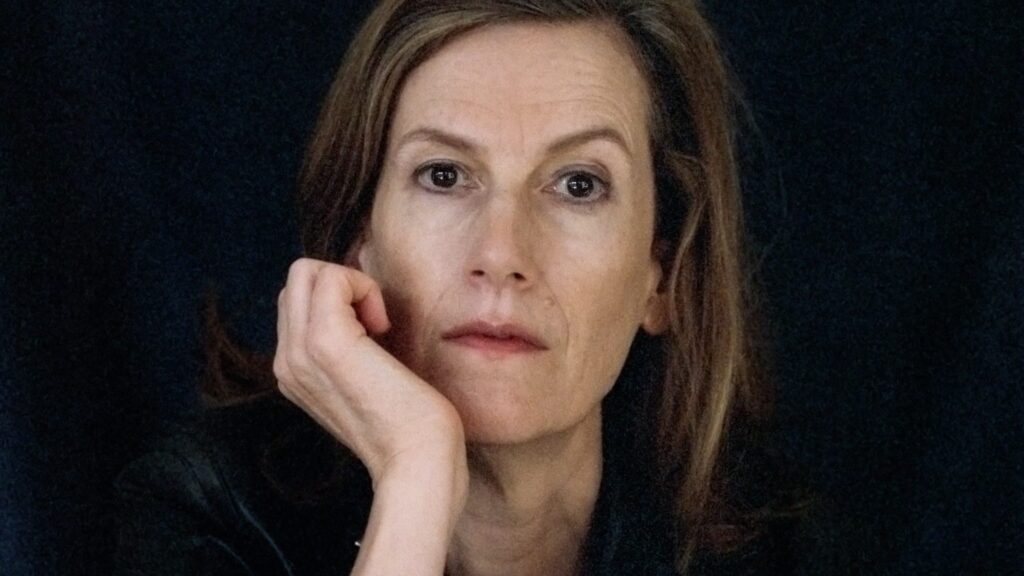
Joanna Hogg (born March 20, 1960) is a British film director and screenwriter known for her meticulous attention to detail and her exploration of class, memory, and the complexities of human relationships.
Julia Ducournau
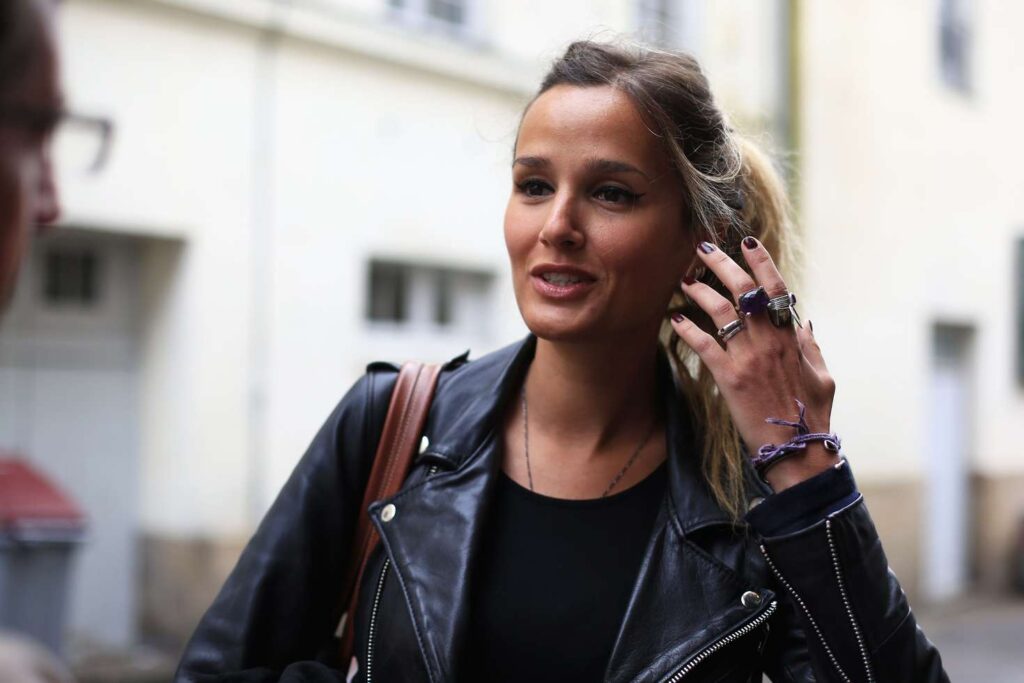
Julia Ducournau (born in Paris, on 18 November 1983) is a French director and screenwriter who has stood out for her bold and provocative style. Her films explore controversial and shocking themes, challenging the conventions of genre cinema.
Justine Triet
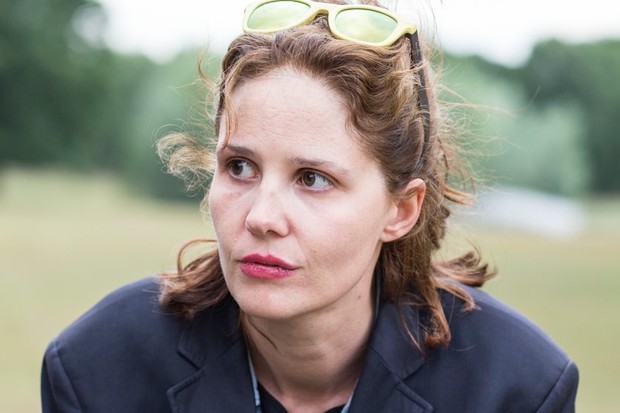
Justine Triet (born July 17, 1978) is a French film director, screenwriter, and editor who has risen to prominence in recent years. Her work is characterized by its sharp wit, social commentary, and exploration of complex female characters.
Kelly Fremon Craig
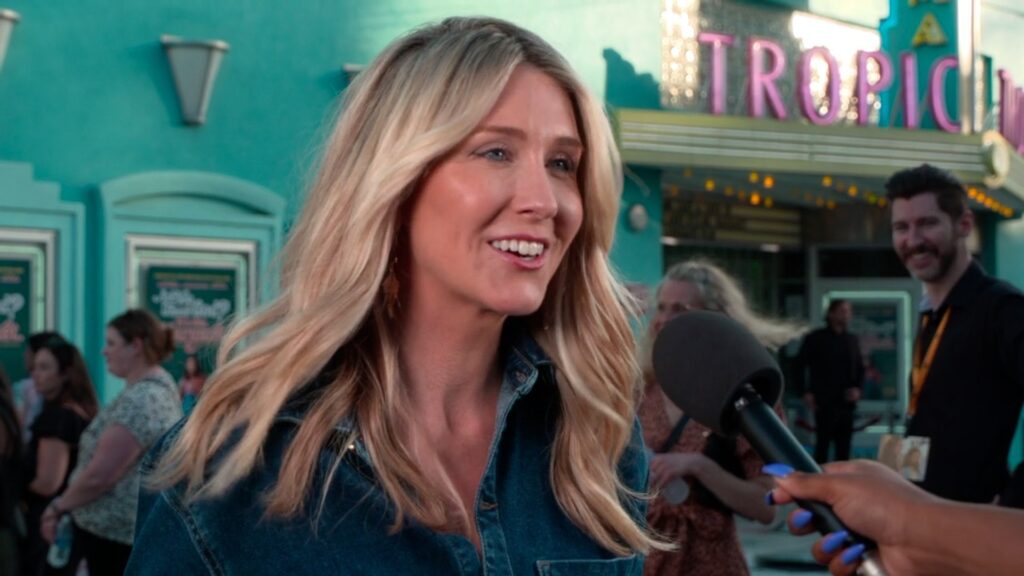
Kelly Fremon Craig is an American screenwriter, producer, and film director known for her talent for telling compelling and realistic coming-of-age stories.
Kelly Reichardt
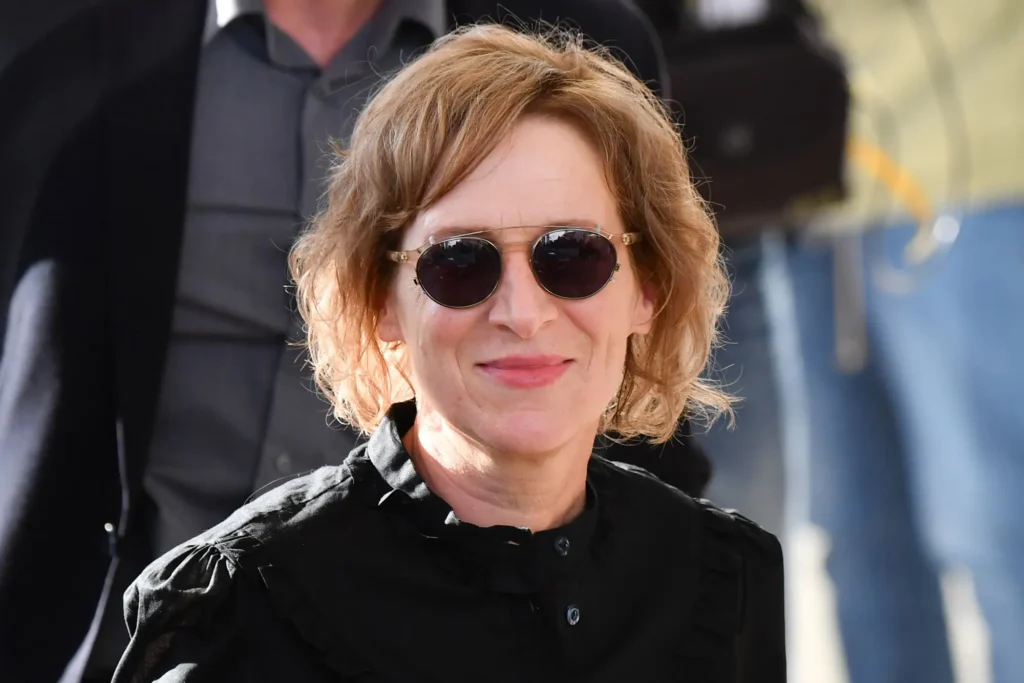
Kelly Reichardt (born March 3, 1964) is an American film director and screenwriter known for her minimalist approach to filmmaking. Her films explore the lives of working-class characters in rural communities, often grappling with themes of isolation, resilience, and the complexities of human relationships.
Kathryn Bigelow
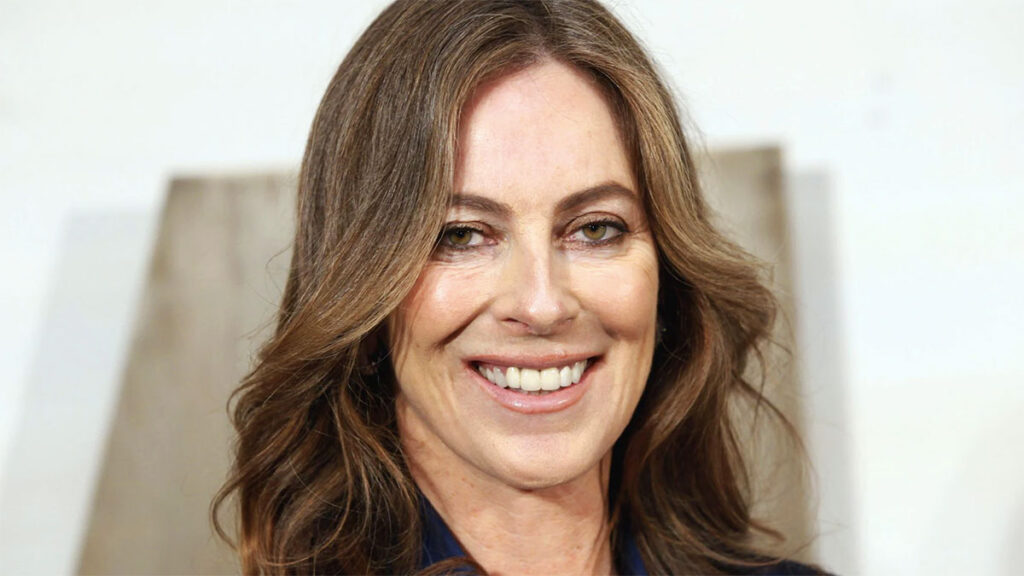
Kathryn Bigelow (born November 27, 1951) is an American filmmaker who has carved a unique path in the male-dominated world of action cinema. Her films are known for their visceral intensity, gritty realism, and exploration of complex themes within the action genre.
Bigelow gained widespread recognition for her ability to blend intense action with nuanced storytelling, setting her apart from her contemporaries. She first garnered attention with films such as “The Hurt Locker” (2008) and “Zero Dark Thirty” (2012), both of which tackle themes of war, morality, and the psychological toll of conflict.
The Hurt Locker“, a gripping portrayal of a bomb disposal team in Iraq, won six Academy Awards, including Best Picture and Best Director, making Bigelow the first woman to receive the Oscar for Best Director. This groundbreaking achievement not only highlighted her skill as a filmmaker but also marked a significant moment in the history of the Academy Awards, challenging gender norms within the industry.
Bigelow’s work often features strong, complex characters, with a focus on their internal struggles and moral dilemmas. She frequently collaborates with acclaimed writers and cinematographers, which contributes to the distinct visual style and narrative depth of her films. Her ability to tell stories that resonate on both emotional and political levels has earned her critical acclaim and a dedicated following.
In addition to her focus on intense action and drama, Bigelow has often explored themes of gender and identity in her earlier works, such as “Near Dark” (1987) and “Blue Steel” (1990). Through these films, she has challenged conventional representations of female characters in the action genre, presenting them as formidable and multifaceted rather than mere accessories to male protagonists.
As she continues to evolve as a filmmaker, Bigelow’s influence extends beyond her films; she has become an inspiration for aspiring female directors and a prominent figure advocating for greater representation of women in Hollywood. Her dedication to her craft and her willingness to confront difficult subjects have solidified her status as a pioneering force in contemporary cinema.
Laura Poitras
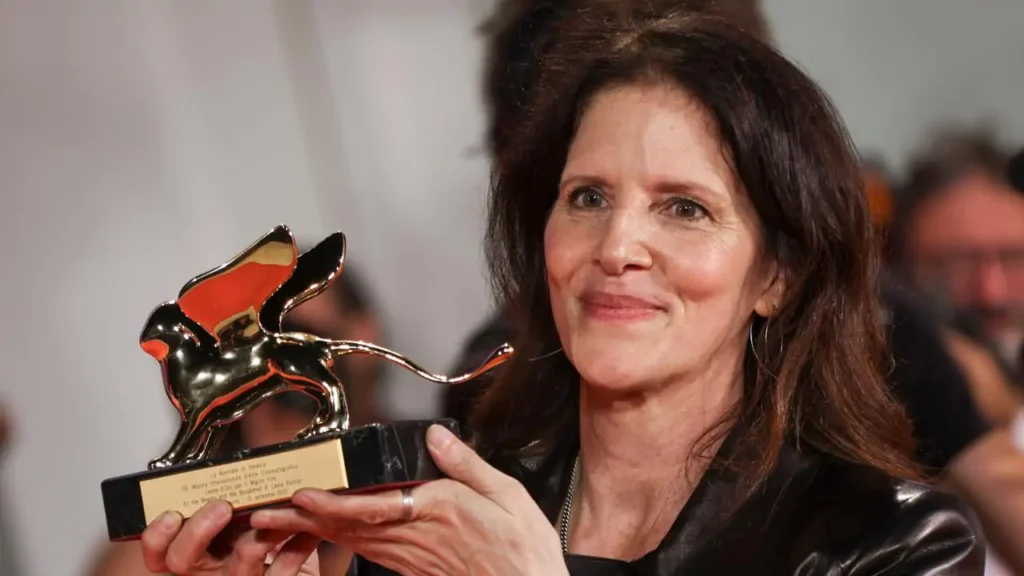
Laura Poitras is a well-respected American documentary filmmaker known for her thought-provoking and often controversial films that delve into social and political issues. Here’s a breakdown of her career.
Laura Poitras is a well-respected American documentary filmmaker known for her thought-provoking and often controversial films that delve into social and political issues. Here’s a breakdown of her career:
**Early Career:** Poitras began her filmmaking journey in the mid-2000s, initially focusing on the impacts of political decisions on the lives of everyday people. Her early works, such as “Flag Wars” (2003), dealt with gentrification and its effects on communities, highlighting her keen interest in social justice themes.
**Major Works:** One of her most acclaimed films, “My Country, My Country” (2006), examines the tumultuous situation in Iraq through the lens of an Iraqi doctor running for office during the U.S. occupation. This documentary garnered an Academy Award nomination and solidified her reputation as a serious filmmaker.
**Collaboration with Edward Snowden:** Poitras’s work took a pivotal turn when she became involved with whistleblower Edward Snowden. This relationship culminated in the film “Citizenfour” (2014), which chronicles Snowden’s decision to leak classified information about NSA surveillance programs. The film not only received widespread critical acclaim but also won the Academy Award for Best Documentary Feature.
**Themes and Style:** Poitras’s filmmaking style often combines a strong narrative with immersive visuals, enabling audiences to engage deeply with complex issues. Her films examine themes of privacy, government accountability, and the challenges of activism in modern society. She often blends personal stories with broader political contexts, making her work relatable and impactful.
**Recent Projects:** In recent years, Poitras has continued to push the boundaries of documentary filmmaking. Her works, such as “Risk” (2016), which focuses on WikiLeaks founder Julian Assange, and her explorations into surveillance and freedom, have further established her as a poignant voice in contemporary cinema.
**Awards and Recognition:** Throughout her career, Poitras has received numerous accolades beyond the Academy Award, including multiple Emmy Awards and the George Polk Award. Her dedication to uncovering truth through storytelling has made her a prominent figure in the world of documentary film.
Leni Riefenstahl
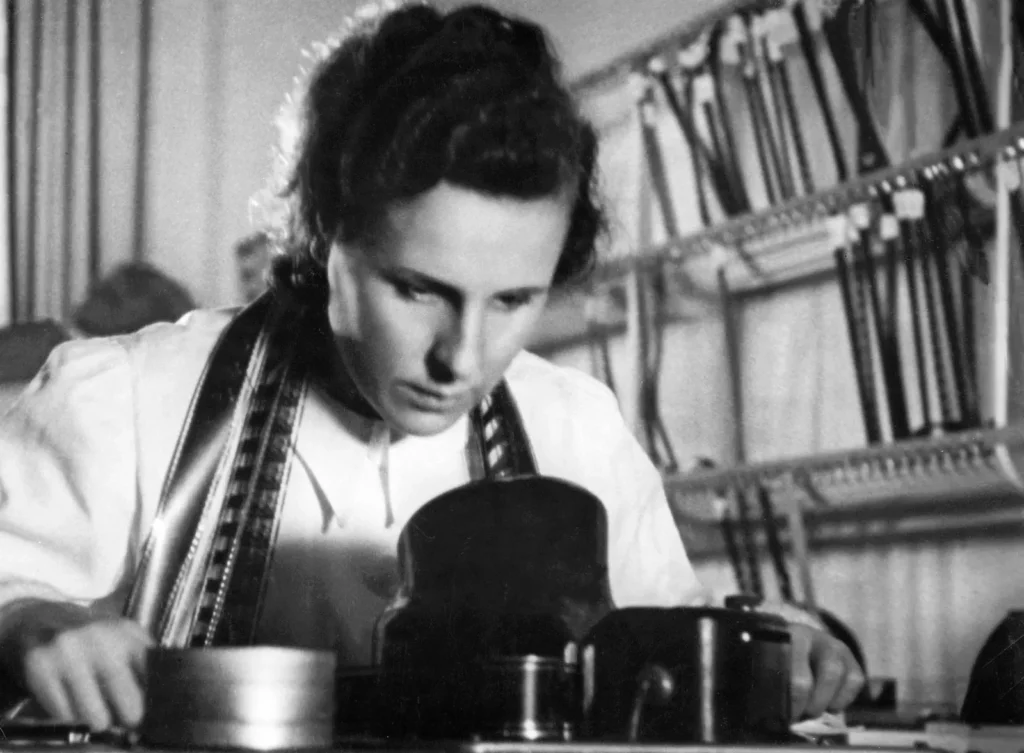
Leni Riefenstahl, born Helene Bertha Amalie Riefenstahl on 22 August 1902 in Berlin, was a German director, actress, film producer, dancer, and photographer. Unfortunately, her fame is mainly linked to her role as a leading propagandist filmmaker of Nazi Germany led by Adolf Hitler.
Riefenstahl is best known for her groundbreaking cinematic works, particularly “Triumph of the Will” (1935) and “Olympia” (1938). Triumph of the Will” documents the 1934 Nuremberg Rally and is often cited for its innovative use of camera angles, editing techniques, and the orchestration of mass propaganda. The film’s aesthetic qualities and technical achievements have been widely studied and praised, even as it serves a deeply troubling purpose in glorifying the Nazi regime and its ideology.
Olympia,” on the other hand, captures the 1936 Berlin Olympic Games and is renowned for its artistic portrayal of athletes and the celebration of human physicality. Riefenstahl’s work in this film has been recognized for pushing the boundaries of sports documentary filmmaking and her use of slow-motion and underwater filming techniques.
Despite her contributions to cinema, Riefenstahl’s legacy is profoundly controversial. After World War II, she faced denazification trials but maintained that she was an artist rather than a political figure. Her attempt to distance herself from the Nazi regime was met with skepticism, as many viewed her work as integral to the propagandist efforts of the state.
In her later years, Riefenstahl turned her focus to photography and the study of tribal cultures in Africa, where she faced further scrutiny for her past affiliations. Throughout her life, Riefenstahl continued to defend her artistry, arguing that her films should be evaluated in terms of their technical and aesthetic merits rather than their political implications.
Leni Riefenstahl passed away on 8 September 2003, leaving behind a complex and controversial legacy that continues to spark debate among filmmakers, historians, and audiences alike. Her works remain significant in discussions of propaganda, art, and the moral responsibilities of artists in relation to their societal contexts.
Lilly Wachowski
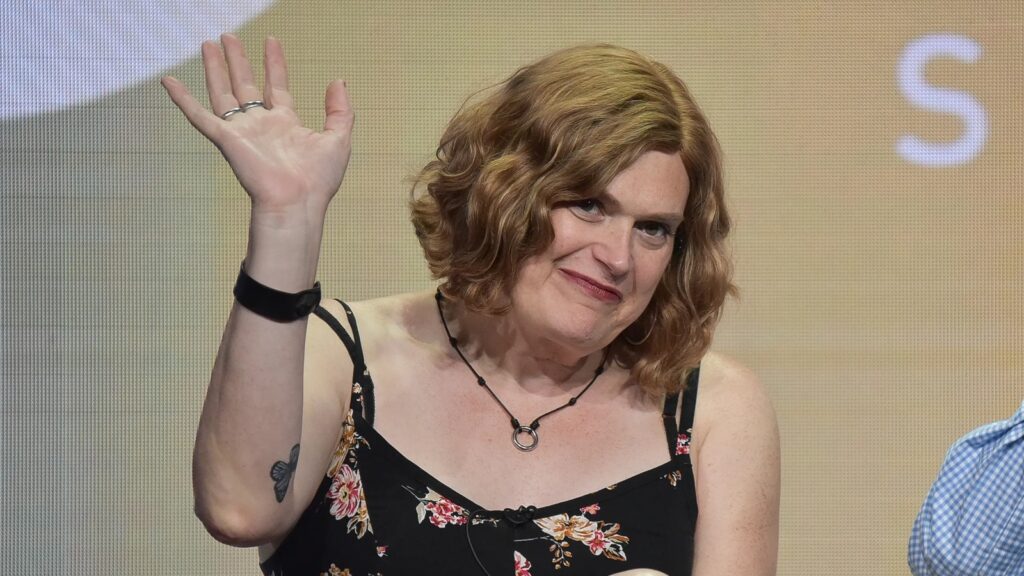
Lilly Wachowski (born December 29, 1967) is an American filmmaker, screenwriter, and producer, best known for her collaborative work with her sister Lana Wachowski. Together, they have created groundbreaking science fiction and action films that have redefined the genres.
Lilly Wachowski gained prominence as a member of the Wachowski siblings after co-creating the iconic film series “The Matrix,” which debuted in 1999. The film not only became a major box office success but also received critical acclaim for its innovative visual effects, deep philosophical themes, and profound cultural impact. The Wachowskis are credited with revolutionizing action cinema through their pioneering use of bullet time and complex narrative structures.
Following the success of “The Matrix,” Lilly and her sister continued to expand their creative vision with sequels including “The Matrix Reloaded” and “The Matrix Revolutions,” released in 2003. Additionally, the duo ventured into various other projects, such as the visually striking film “Cloud Atlas” (2012) and the Netflix series “Sense8,” which garnered attention for its ambitious storytelling and diverse representation of characters.
In 2016, Lilly Wachowski publicly came out as a transgender woman, using her platform to advocate for LGBTQ+ rights and representation in media. Her journey of self-discovery and acceptance has been an inspiration to many, and she continues to push for inclusivity both on and off-screen. In recent years, Lilly has been involved in various projects that reflect her personal experiences and the narratives of marginalized communities, seeking to bring their stories to light.
As a filmmaker, Lilly Wachowski is known for her commitment to exploring themes of identity, freedom, and the human experience, creating thought-provoking narratives that resonate with audiences around the world. Her contributions to cinema have solidified her legacy as a pioneer in the industry, and her work continues to influence a new generation of filmmakers and storytellers.
Lina Wertmüller
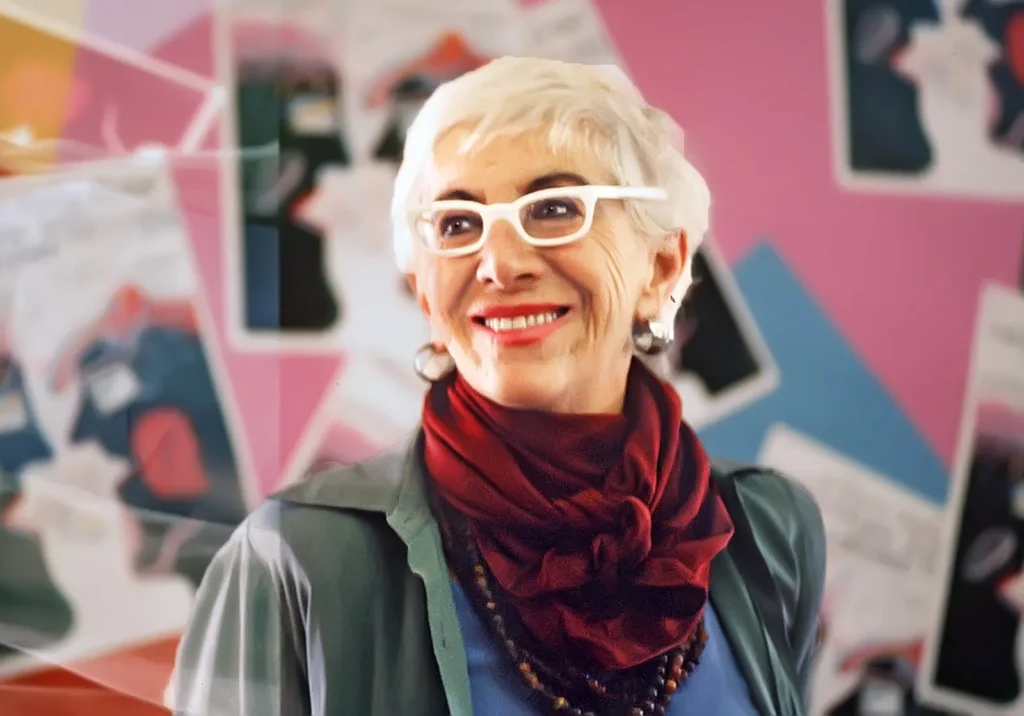
Lina Wertmüller, born Arcangela Felice Assunta Wertmüller von Elgg Spanol von Brauchich, was an Italian director and screenwriter of immense talent. Known for her bold and provocative films, she left an indelible mark on Italian and international cinema.
Her career began in the 1960s, a period characterized by a significant evolution in film artistry and storytelling. Wertmüller’s work often confronted social issues, challenging the status quo through a mix of sharp humor and unflinching realism. Her films frequently explored themes of gender, power dynamics, and the complexities of human relationships, often featuring strong female protagonists who defied traditional roles.
One of her most acclaimed films, “Seven Beauties” (“Pasqualino SetteBellezze”), garnered international recognition and earned Wertmüller an Academy Award nomination for Best Director—making her the first woman to receive such an honor. The film, which threaded together the absurdity of war and the resilience of the human spirit, showcased her unique ability to blend tragedy with dark comedy, leaving audiences both entertained and provoked to think deeply about the challenges of existence.
Wertmüller’s distinctive style and unorthodox narrative techniques set her apart in a male-dominated industry, and she often collaborated with talented actors including Giancarlo Giannini, who became a frequent star in her films. Her cinematic vision transcended national borders, influencing filmmakers around the world and earning her a dedicated following.
As her career progressed, Wertmüller continued to push boundaries with works like “The Seduction of Mimi” and “Swept Away,” both of which exemplified her critique of social norms and her knack for crafting complex characters embroiled in tumultuous scenarios. Even later in life, her contributions to cinema were celebrated, acknowledging her role as a pioneer who paved the way for future generations of female filmmakers.
Wertmüller remained active in the industry for decades, receiving numerous accolades and honors, including the prestigious Golden Lion for Lifetime Achievement at the Venice Film Festival. Her legacy endures through her films and the impact they had on the cinematic landscape, as well as the ongoing discussions around gender and representation in film informed by her groundbreaking work.
Lois Weber
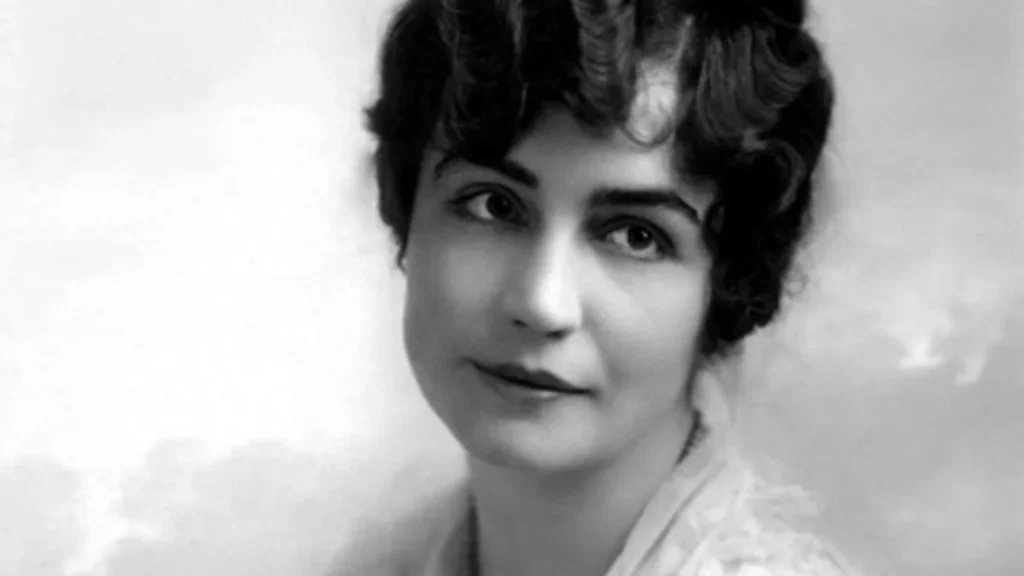
Lois Weber (1879-1939) was an American silent film director, screenwriter, producer, and actress who left a significant mark on the early days of cinema. Here’s a closer look at her achievements:
Lois Weber was one of the first female directors in the history of cinema, pioneering innovative techniques and narratives that challenged societal norms of her time. She directed over 40 films during her career, many of which addressed pressing social issues such as women’s rights, poverty, and the moral dilemmas faced by society.
Weber was known for her mastery of visual storytelling and her ability to blend entertainment with social commentary. Her film “Hypnotism” (1914) was one of the first to explore psychological themes, while “Where Are My Children?” (1916) tackled topics like birth control and reproductive rights—a bold move for a female director at the time.
In addition to her directorial work, Weber was a strong advocate for women in the film industry, often employing women in various production roles and highlighting women’s perspectives in her films. Her work not only showcased her artistic talents but also her commitment to promoting female empowerment.
Despite her significant contributions to cinema, Weber’s legacy was in danger of being forgotten as the industry evolved and the silent film era waned. However, her influence can be seen in the works of later generations of filmmakers who continue to push boundaries and advocate for social change.
In recent years, there has been a renewed interest in her films and her role in the cinematic landscape, leading to celebrations and retrospectives that honor her groundbreaking achievements. Lois Weber remains an important figure in film history, representing the intersection of artistry and activism during a transformative period in storytelling.
Lucrecia Martel
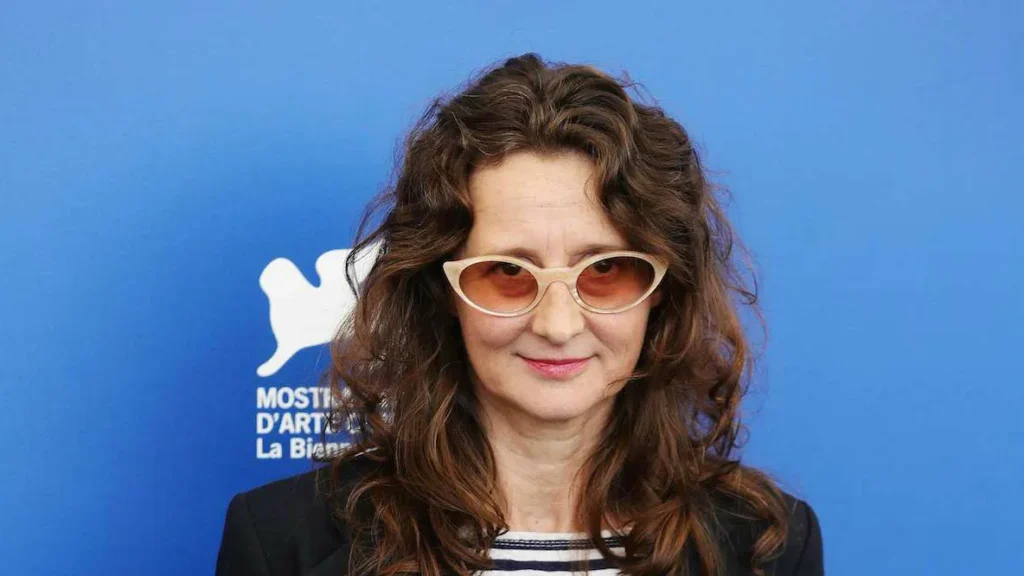
Lucrecia Martel (born December 14, 1966, Salta, Argentina) is an Argentinian film director, screenwriter, and producer who has distinguished herself with her introspective and unsettling films. Her works, often set in her hometown of Salta in northern Argentina, explore social tensions, repressed sexuality,and the psychological anxieties of her characters.
Lulu Wang

Lulu Wang (born Wang Ziyì, 王逸逸 on February 25, 1983) is a Chinese-American filmmaker who has gained international recognition for her poignant and personal films. Her work bridges cultures and explores themes of family, identity, and loss.
Lynne Ramsay
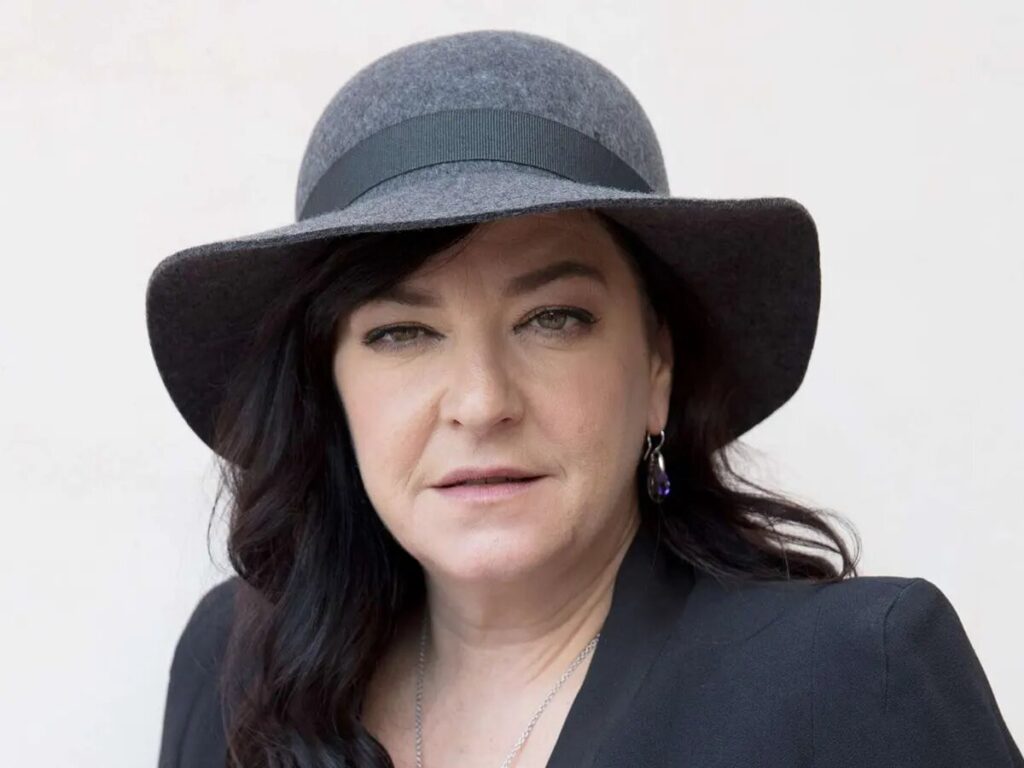
Lynne Ramsay (born December 5, 1969) is a Scottish film director, screenwriter, producer, and cinematographer, known for her visually striking and emotionally raw films. Her work delves into complex themes of childhood trauma, alienation, and resilience.
Marguerite Duras
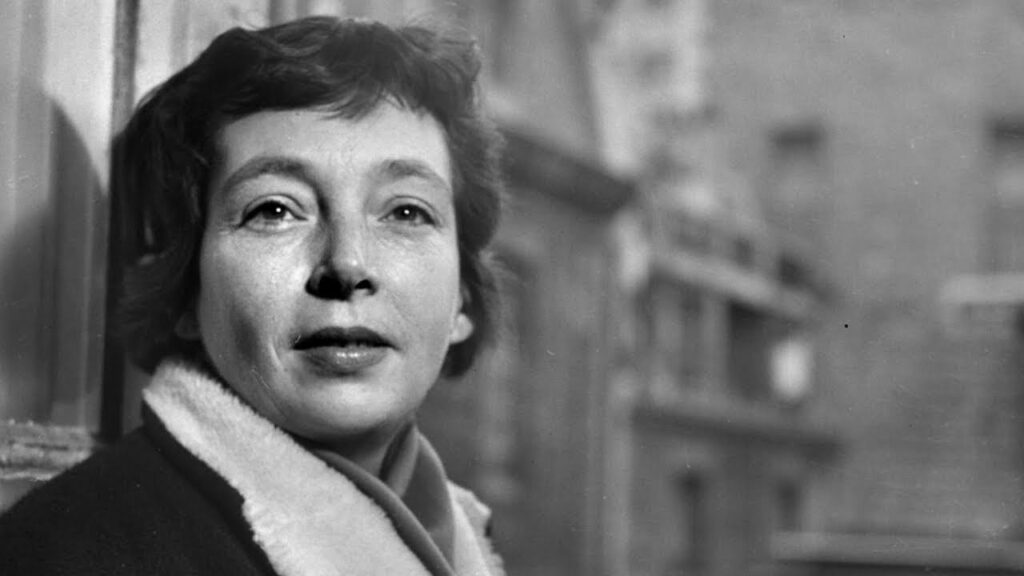
Marguerite Duras (born Marguerite Donnadieu, April 4, 1914 – March 3, 1996) was a French novelist, playwright, screenwriter, essayist, and experimental filmmaker. Her work transcended genre and language, leaving a lasting impression on literature and cinema.
Duras is best known for her novel “L’Amant” (“The Lover“), which won the Prix Goncourt in 1984 and was later adapted into a successful film. This semi-autobiographical work explores themes of love, desire, and colonialism, drawing on her own experiences growing up in French colonial Indochina. The novel’s lyrical prose and raw emotionality exemplify Duras’s unique narrative style, combining fragments of memory with a dreamlike quality that challenges conventional storytelling.
Throughout her career, Duras experimented with various forms of writing and expression. Her theatrical works, such as “Hydrangeas” and “The Square,” showcase her innovative approach to dialogue and character development, often creating a sense of intimacy and tension that captivates audiences. In addition to her literary achievements, Duras also made a mark in cinema, directing films like “Nathalie Granger” and “India Song,” which are characterized by their evocative imagery and minimalistic storytelling.
Duras was not only a prominent figure in the literary world but also a voice of her generation, addressing the complexities of human relationships, gender, and identity. Her writings often reflect her concerns about societal norms and the constraints placed on individuals, particularly women. Duras’s enduring influence is evident in the works of contemporary authors and filmmakers who continue to draw inspiration from her groundbreaking contributions to literature and the arts.
Her legacy lives on through her extensive body of work, which continues to resonate with readers and artists alike, inviting exploration of the depths of human experience.
Maria Schrader
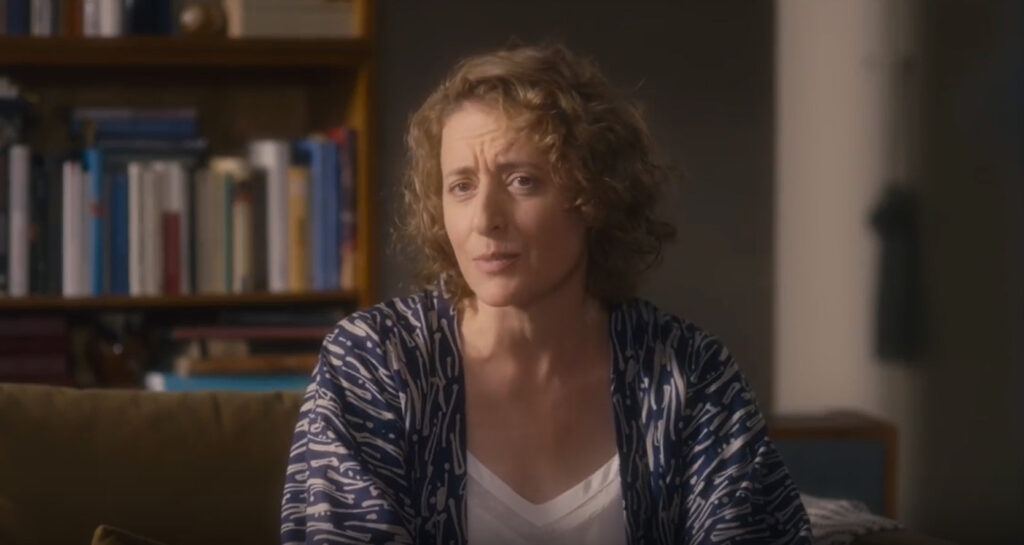
Maria Schrader (born September 27, 1965) is a German actress, screenwriter, and director who has carved a distinct path in the film industry. Her work ranges from acclaimed dramas to award-winning miniseries, showcasing her versatility and talent.
Mary Harron
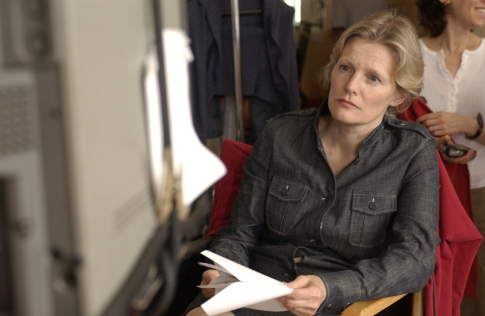
Mary Harron (born January 12, 1953) is a Canadian filmmaker and screenwriter known for her sharp wit, unflinching portrayals, and explorations of dark and complex themes. her work often blurs the lines between genres, captivating audiences with its unique blend of social commentary and psychological intrigue.
Maya Deren
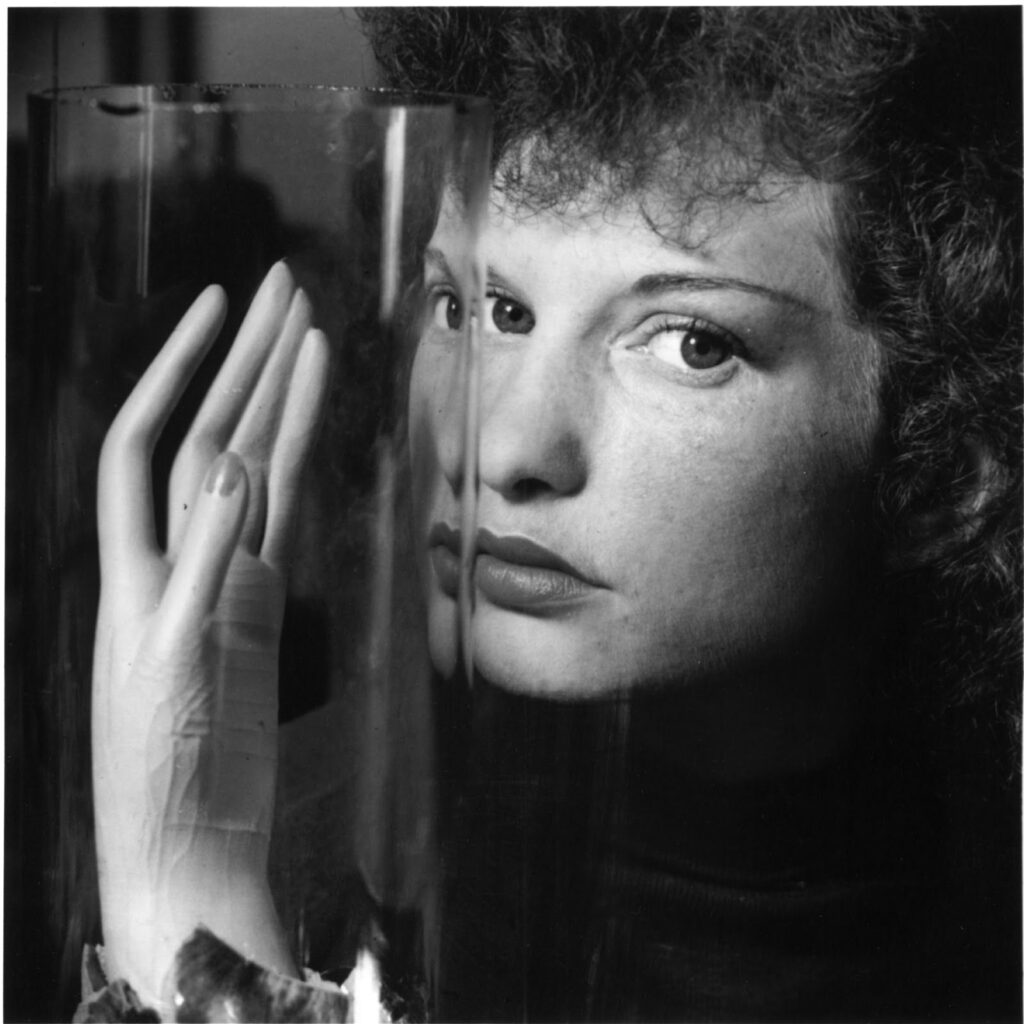
Maya Deren, born Eleanora Derenkovskaja (Kyiv, Ukraine, 29 April 1917 – New York, 13 October 1961), was a key figure in American experimental and avant-garde cinema of the 1940s and 1950s. She is considered by many to be the “mother” of American avant-garde cinema. She was also a choreographer, dancer, film theorist, poet, teacher, and photographer.
Deren’s innovative approach to filmmaking and her distinct aesthetic sensibilities transformed the landscape of American cinema. Her most celebrated work, “Meshes of the Afternoon” (1943), is a landmark film that explores themes of dream, identity, and the subconscious. Shot in black and white, the film employs inventive techniques such as slow motion, unconventional camera angles, and a non-linear narrative structure, which together create a surreal and immersive experience for the viewer.
Deren was not only a filmmaker but also a vocal advocate for the artistic potential of cinema. She argued for the importance of personal expression in film, emphasizing the medium’s capacity to convey emotions and abstract ideas. Her writings on film theory, particularly in essays such as “An Anagram of Ideas on Art, Form, and Film,” reflect her deep engagement with the philosophical underpinnings of visual art and the importance of the filmmaker’s voice.
In addition to her cinematic contributions, Deren had a profound influence on the world of dance. Her background in modern dance informed her filmic style, leading to an emphasis on movement and the physicality of the body. She often collaborated with dancers and choreographers, intertwining the disciplines of dance and film in her work.
Throughout her career, Deren was also deeply interested in the cultural aspects of her art. She traveled extensively, drawing inspiration from various cultures and philosophies. Her later works, such as “At Land” (1944) and “Ritual in Transfigured Time” (1946), showcase her interest in spirituality and the exploration of consciousness.
Despite her untimely death at the age of 44, Maya Deren’s legacy endures. She paved the way for future generations of filmmakers and artists, encouraging them to explore the boundaries of form and content in their work. Her influence can be seen in the realms of experimental film, performance art, and even contemporary visual culture, establishing her as a pivotal figure in the evolution of artistic expression in the 20th century.
Maggie Gyllenhaal
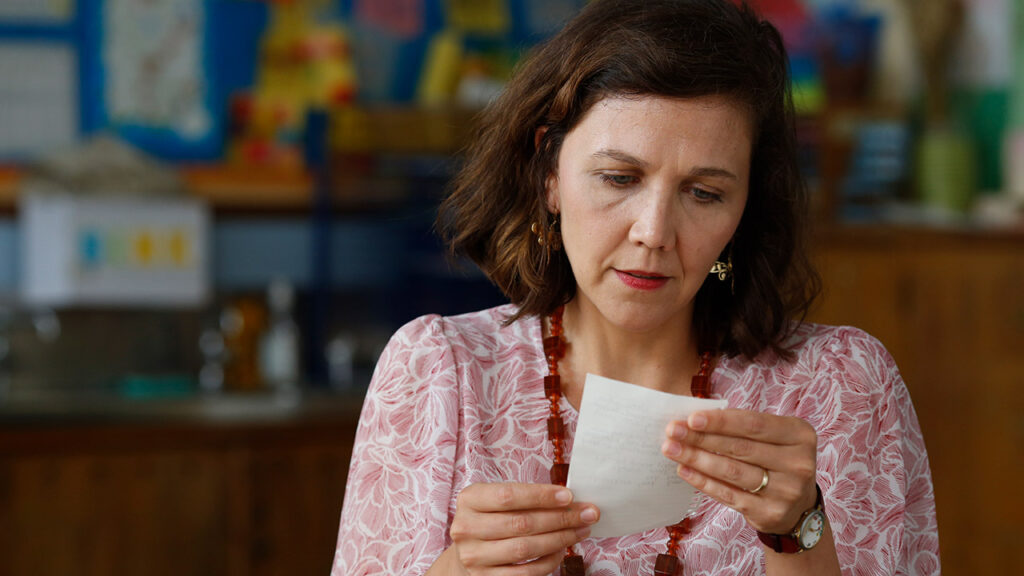
Margalit Ruth “Maggie” Gyllenhaal (/ˈdʒɪlənhɔːl/; born November 16, 1977) is an American actress and filmmaker. Part of the Gyllenhaal family, she is well-known for her roles in independent films and her ability to portray complex characters.
Maggie Gyllenhaal first gained widespread recognition for her role in the 2001 film *Donnie Darko*, where she starred alongside her brother, Jake Gyllenhaal. Her performance showcased her talent and earned her critical acclaim, setting the stage for a successful career in both film and television. Over the years, she has appeared in a variety of projects, including *Secretary* (2002), where her portrayal of a troubled secretary garnered her a Golden Globe nomination, and *The Dark Knight* (2008), in which she played Rachel Dawes, further solidifying her status in Hollywood.
Gyllenhaal has continued to take on challenging roles that highlight her versatility as an actress. She has appeared in films such as *Nanny McPhee* (2005), *Crazy Heart* (2009), and *The Lost Daughter* (2021), the latter of which she also produced and directed. In addition to her film work, she has gained recognition for her role in the critically acclaimed HBO series *The Deuce*, where she portrayed a real-life character navigating the complexities of the adult film industry.
In recent years, Gyllenhaal has shifted her focus towards directing, making her feature directorial debut with *The Lost Daughter*, which received positive reviews and several award nominations. Beyond her artistic talents, she is also known for her advocacy on social issues, including women’s rights and mental health awareness.
Maggie Gyllenhaal’s work continues to resonate with audiences, and her contributions to film and television have established her as a prominent figure in contemporary cinema.
Mia Hansen-Løve
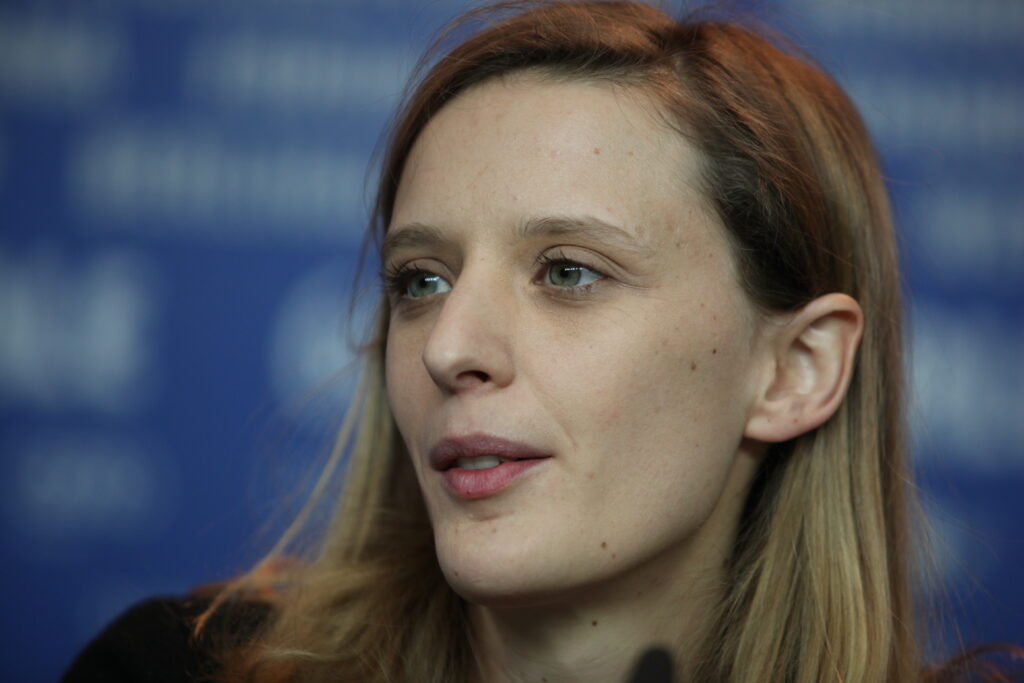
Mia Hansen-Løve (Paris, 5 February 1981) is a French director and screenwriter who has distinguished herself for her intimate narrative style and her ability to tell realistic stories that explore human relationships and moments of transition in life.
Mia Hansen-Løve (Paris, 5 February 1981) is a French director and screenwriter who has distinguished herself for her intimate narrative style and her ability to tell realistic stories that explore human relationships and moments of transition in life.
Her work often reflects her own experiences and observations, drawing from the complex emotions that arise during periods of change. With a background in film criticism and a deep passion for cinema, Hansen-Løve has crafted a filmography that resonates with audiences seeking authenticity and depth in storytelling.
Her debut feature, “Everything Will Be Fine” (2007), earned critical acclaim and set the tone for her subsequent films, which often feature strong, nuanced female characters navigating love, loss, and personal growth. Films like “The Father of My Children” (2009) and “Goodbye First Love” (2011) further established her as a significant voice in contemporary French cinema.
In “Eden” (2014), Hansen-Løve delves into the world of house music and the cultural shifts of the 1990s, showcasing her ability to blend personal and collective narratives. Her film “Things to Come” (2016) stars Isabelle Huppert as a philosophy teacher facing unexpected changes in her life, illustrating Hansen-Løve’s hallmark approach to exploring life’s unpredictability.
Hansen-Løve’s films are characterized by their philosophical underpinnings, often engaging with themes of time, memory, and the passage of life. This reflective quality invites viewers to ponder their own experiences while grounding the stories in relatable human emotions.
Her work has garnered numerous awards and nominations, solidifying her place within the contemporary cinematic landscape. As she continues to evolve as a filmmaker, Mia Hansen-Løve remains a keen observer of the human condition, crafting films that resonate long after the credits roll.
Mira Nair

Mira Nair (born October 15, 1957) is an Indian-American filmmaker known for her vibrant and transportive stories that bridge cultures and explore the complexities of human experience. Her production company, Mirabai Films, specializes in creating films for international audiences that delve into the social, economic, and cultural spheres of Indian society.
Nair’s work often highlights the intersection of tradition and modernity, illuminating the lives of characters caught between differing cultures. With a distinctive cinematic style, she often employs rich visual storytelling, dynamic character development, and themes of displacement and identity.
Her breakthrough film, “Salaam Bombay!” (1988), garnered international acclaim and established Nair as a prominent voice in global cinema. The film portrayed the lives of street children in Mumbai, showcasing their struggles and resilience amidst a backdrop of poverty and aspiration. It received an Academy Award nomination for Best Foreign Language Film and won numerous international accolades, cementing Nair’s reputation as a powerful storyteller.
Following “Salaam Bombay!”, Nair directed a variety of films that further explored the Indian diaspora, including “The Perez Family” (1995), “Monsoon Wedding” (2001), and “The Namesake” (2006). Monsoon Wedding,” in particular, was a critical and commercial success, blending humor and drama to depict a Punjabi wedding while addressing issues of family, love, and cultural conflict.
Throughout her career, Nair has also been involved in numerous social and political initiatives. She has supported various causes, including women’s rights and education, and has used her platform to advocate for marginalized communities. Her commitment to storytelling as a means of fostering understanding and empathy continues to resonate with audiences worldwide.
Nair’s contributions to cinema have been recognized with numerous awards, including the Golden Lion at the Venice Film Festival and the National Film Award in India. As a filmmaker, she remains an influential figure, inspiring new generations of artists and storytellers to explore the rich tapestry of human experiences reflected through diverse cultural lenses.
Nancy Meyers
Nancy Meyers (born Nancy Jane Meyers on December 8, 1949) is an American screenwriter, director, and producer, known for her successful romantic comedies that often feature middle-aged female protagonists. Her films are known for their intelligence, sophisticated humor, lavish settings, and realistic portrayals of relationships.
Rose Glass

Rose Glass (born 1990) is a young and acclaimed british filmmaker quickly making a name for herself in the horror genre. Her work is characterized by its psychological depth, innovative storytelling, and unsettling atmosphere.
Sarah Polley
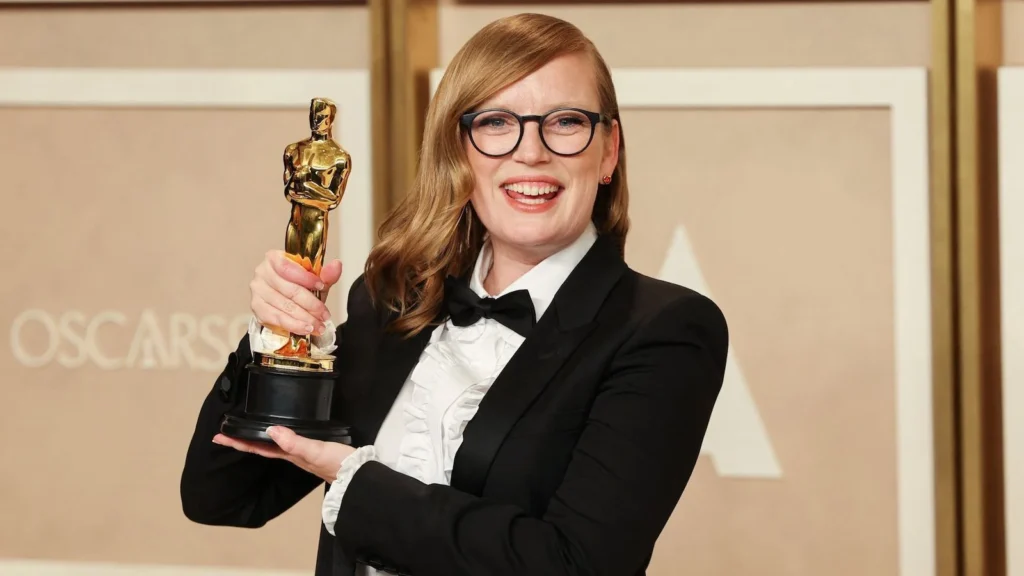
Sarah Polley (born October 19, 1975, Toronto) is a talented Canadian actress and director known for her extensive career both in front of and behind the camera. Her filmography ranges from dramatic roles in independent films to critically acclaimed directorial work.
Polley began her acting career at a young age, appearing in various television series and films throughout the 1980s and 1990s. She gained widespread recognition for her role in the 1997 film “The Sweet Hereafter,” a poignant drama that showcased her remarkable ability to convey deep emotional resonance.
Transitioning to directing, Polley made her mark with her debut feature film, “Away from Her” (2006), which earned her an Academy Award nomination for Best Adapted Screenplay. This film, which explores themes of love and memory through the lens of Alzheimer’s disease, was lauded for its sensitive portrayal of complex human relationships.
Polley continued to build a diverse body of work with subsequent films such as “Take This Waltz” (2011) and “Stories We Tell” (2012), the latter being a documentary that delves into her family history and the nature of storytelling itself. Her keen eye for detail and her ability to weave personal narratives into broader themes have established her as a unique voice in contemporary cinema.
In addition to her film career, Polley has been an outspoken advocate for various social issues, including women’s rights and mental health awareness. She has used her platform to bring attention to important conversations within the film industry and beyond.
As of 2023, Polley continues to inspire audiences with her work, demonstrating her versatility as both an actress and a director. Her latest projects further explore the intricacies of human experience, affirming her status as a significant figure in the world of film.
Shirley Clarke
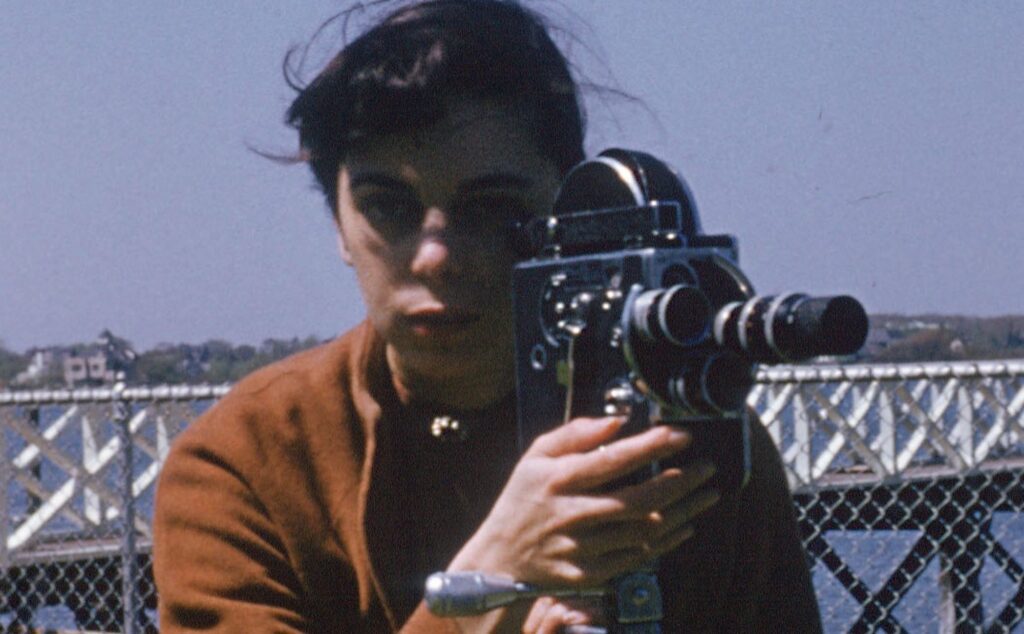
Shirley Clarke (born Shirley Brimberg; October 2, 1919 – September 23, 1997) was an American filmmaker who left a lasting mark on independent cinema. Her work is known for its groundbreaking experimentation, focus on social realism and exploration of human behavior.
Shirley Clarke was a pioneering figure in the world of independent film, recognized for her innovative techniques and commitment to authenticity. She began her career in the 1950s, a time when the cinematic landscape was primarily dominated by Hollywood’s formulaic productions. Clarke broke away from the conventional norms by creating films that reflected the complexities of real life and embraced the intricacies of human emotions.
One of her most notable films, “The Connection” (1961), was a seminal work in the realm of independent cinema. It revolved around a group of drug addicts waiting for their connection to arrive, offering a raw and unflinching look at addiction and the struggles faced by marginalized individuals. The film’s blend of documentary-style realism and fictional narrative paved the way for future filmmakers to explore similar themes without the constraints of traditional storytelling.
Clarke’s commitment to experimentation extended beyond narrative content. She often employed innovative editing techniques, utilizing sound and visual effects to enhance the emotional impact of her films. Her work challenged the audience to interact with the medium in new ways, urging viewers to engage with the material on a deeper level.
In addition to her filmmaking endeavors, Clarke was also a passionate advocate for the arts. She co-founded the American Film Institute and was instrumental in creating opportunities for emerging filmmakers, particularly women in a male-dominated industry. Clarke’s influence can be seen in the works of many contemporary filmmakers who continue to explore themes of identity, social justice, and the human experience.
Despite facing challenges throughout her career, including financial struggles and the shifting tides of the film industry, Shirley Clarke’s legacy as a trailblazer in independent cinema remains resolute. Her films not only entertain but also provoke thought and inspire dialogue, solidifying her reputation as an essential figure in the history of American cinema.
Sofia Coppola

Sofia Coppola (born May 14, 1971, New York City) is an American director, screenwriter, producer, and actress. The daughter of acclaimed filmmaker Francis Ford Coppola, she has carved out her own space in the international cinema landscape with a unique and auteur style.
Coppola gained widespread recognition for her work in the early 2000s, particularly with her film “Lost in Translation” (2003), which won her an Academy Award for Best Original Screenplay. The film, starring Bill Murray and Scarlett Johansson, explored themes of loneliness and alienation in a foreign land. Its poignant narrative and lush visuals resonated with audiences and critics alike, solidifying Coppola’s reputation as a formidable talent in the industry.
Following this success, Coppola continued to create films that reflect her distinctive approach to storytelling, characterized by a focus on strong, complex female characters, lush cinematography, and a contemplative narrative style. Her subsequent works, including “Marie Antoinette” (2006), “Somewhere” (2010), and “The Bling Ring” (2013), further showcased her ability to blend cultural critique with visual artistry.
Coppola’s films often feature themes of wealth, privilege, and the disconnection that can accompany modern life. She has developed a unique aesthetic that combines dreamy visuals with an introspective examination of contemporary society. Her collaborations with cinematographer Harris Savides and production designer Anne Ross are particularly noted for elevating her storytelling through striking imagery.
In addition to her work as a director, Coppola has also been involved in various production and writing projects, expanding her influence beyond directing. She founded the production company American Zoetrope with her family, focusing on projects that emphasize artistic storytelling.
Coppola’s contributions to cinema have not only earned her critical acclaim but also a dedicated fan base. She is celebrated for her ability to create films that resonate emotionally while exploring the intricacies of identity, belonging, and the complexities of the human experience. As she continues to evolve as a filmmaker, Sofia Coppola remains a pivotal figure in the landscape of modern cinema, inspiring a new generation of directors and storytellers.
Vera Chytilová
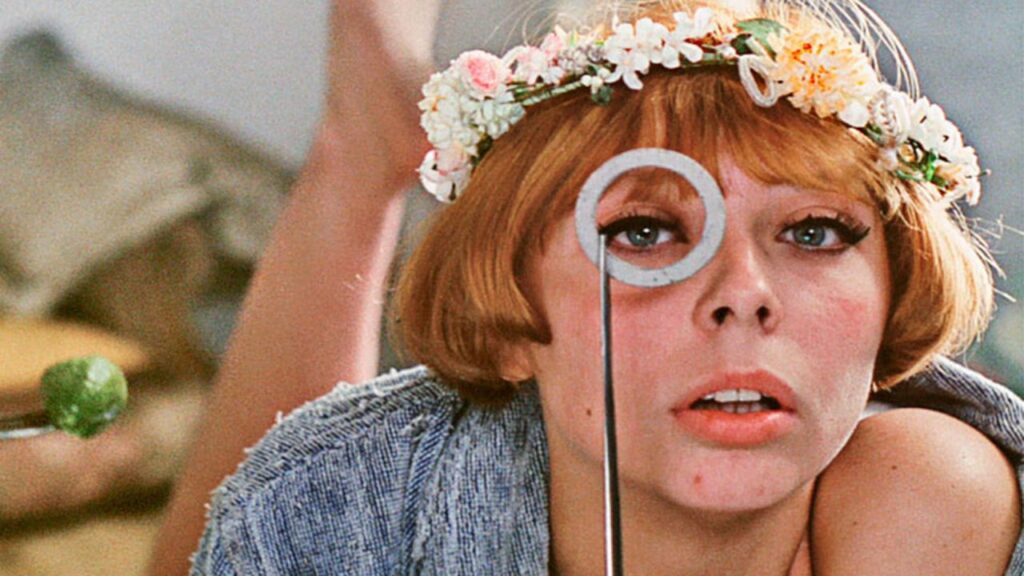
Věra Chytilová (February 2, 1929 – March 12, 2014) was an avant-garde Czech film director and a pivotal figure in the Czech New Wave movement of the 1960s. Known for her bold visual style, social commentary, and feminist themes, her films continue to be celebrated for their innovative spirit and enduring relevance.
Cathy Yan

Cathy Yan (born c. 1980s) is a Chinese-born American film director, screenwriter, and producer. Her work bridges cultural divides, showcasing a unique voice in contemporary cinema.
Cathy Yan gained international recognition with her feature film debut, “Dead Pigs,” which premiered at the 2018 Sundance Film Festival. The film, a dark comedy centered around a grotesque incident in modern-day Shanghai, highlights her ability to intertwine humor with social commentary, showcasing everyday life in a rapidly changing urban landscape.
Yan’s most notable work, however, is the 2020 film “Birds of Prey (and the Fantabulous Emancipation of One Harley Quinn),” in which she became the first Asian woman to direct a superhero film. The film, featuring Margot Robbie reprising her role as Harley Quinn, was praised for its vibrant visual style, energetic pacing, and strong female characters. Yan’s feminist approach and fresh take on the superhero genre earned her critical acclaim and further solidified her position in Hollywood.
In addition to her directorial work, Cathy Yan has been involved in various other film projects, focusing on stories that explore the complexity of identity, empowerment, and cultural representation. Her commitment to amplifying underrepresented voices in film has made her a prominent figure in the industry, inspiring a new generation of filmmakers. Outside of cinema, Yan engages in discussions about representation and diversity in Hollywood, striving to create pathways for more inclusive storytelling.
As she continues to develop new projects, Yan remains dedicated to her vision of crafting narratives that resonate with diverse audiences, pushing the boundaries of traditional filmmaking and challenging societal norms. Through her work, she successfully positions herself as a pioneering force in contemporary cinema, celebrating the richness of cultural experiences.
A vision curated by a filmmaker, not an algorithm
In this video I explain our vision



